June 24, 2021
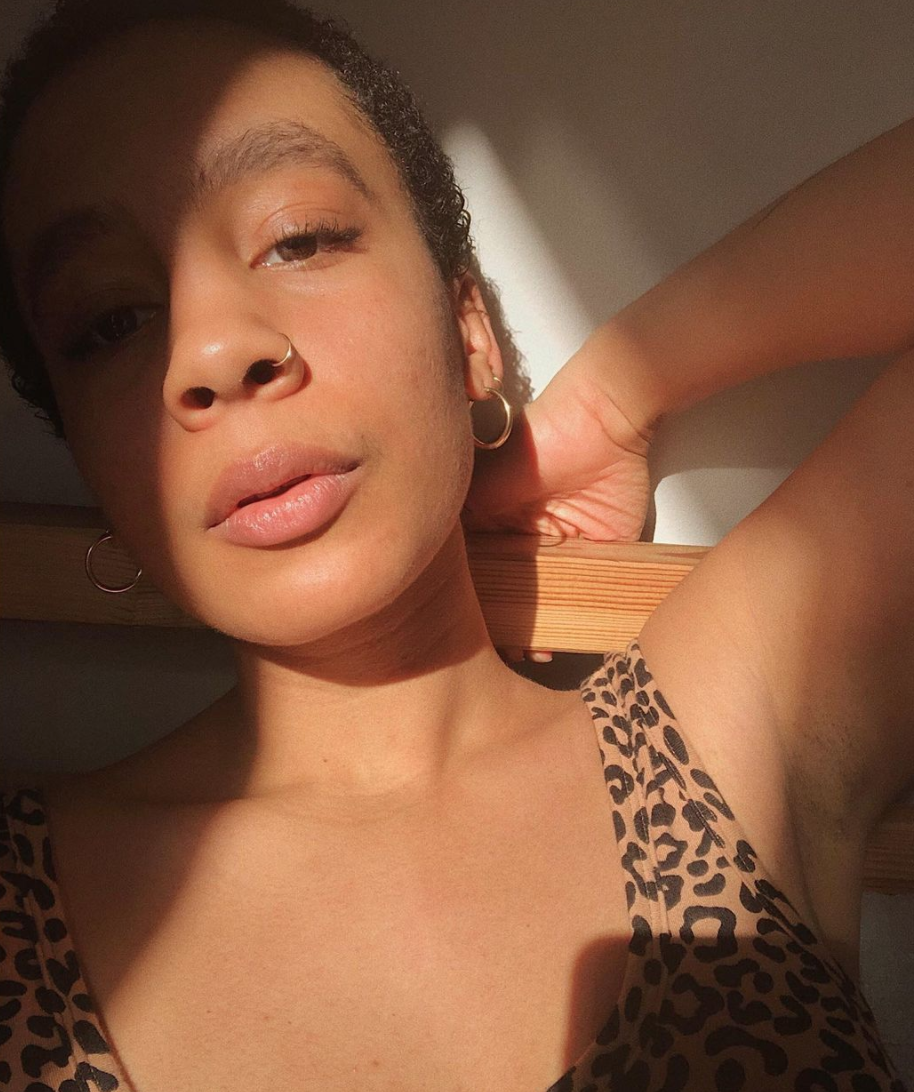
Hello natural beauties!
As summer kicks off and we start to see light at the end of the COVID tunnel, we’ve been having lots of *good* convos. Particularly around: bodies! And the thing we all go through that might not always feel so comfy to chat about. But the truth is? Not talking our bodies and the ups and down that come with them can often result in us feeling like we’re alone when that is so not the case.
So for this month’s GOOD Talks feature, we are so honored to share this interview with Sena Agawu. A Chicago-based creator + higher education professional, Sena vulnerably sat down with us to discuss all things #bodytalk. From vaginal health, therapy and mental health, to body hair and beauty standards. Let’s jump in!
SG: Could you tell us a bit about yourself + your journey?
Sena: Hello! My name is Sena and I’m originally from Central Pennsylvania. I grew up in a family of four. I’m biracial. My dad is from Ghana and my mom is from upstate New York. I was homeschooled the majority of my childhood, which I think had a really large impact on how I view the world and my perception of things. My mother is very *granola* and has always been super into the environment and natural products. I give her a lot of credit as she’s white and didn’t really know how to do hair like mine or my sister so I really respect her learning how as part of her journey in motherhood.
I’m currently based in Chicago where I work in higher education, specifically, the Diversity, Equity and Inclusion space at the Chicago Booth School of Business. For a long time, I’ve been really interested in sustainability, ethically made products, clothing, etc. and more recently I’ve been making that foray into the wellness space as well.
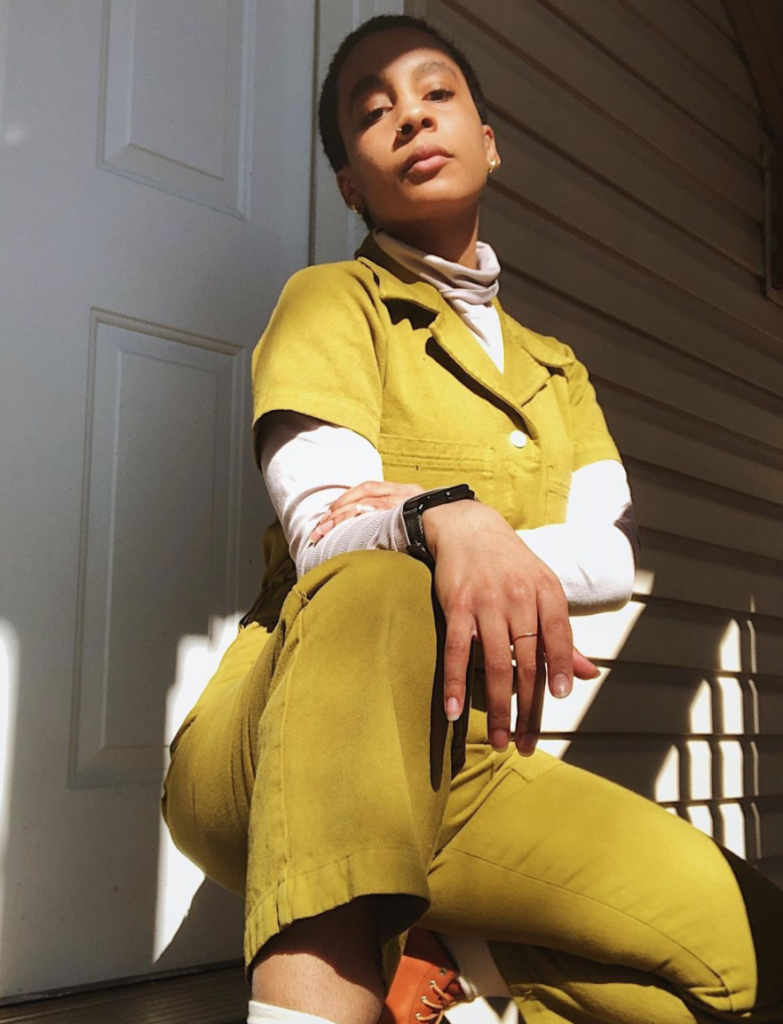
SG: What are 3 body convos that you wish weren’t so taboo?
Sena: 1. Body hair. I draw a lot of inspiration from my sister who is two years younger than me and who is definitely interested in similar things that I am when it comes to these types of conversations such as pushing back against the more traditional perception of what beautiful is — and how that intersects with race and gender presentation. Also, I draw inspiration from my mother and how she raised my sister and I. She never shaved anything on her body and as a teenager I found it kind of embarrassing, since it’s impossible to escape these ideas of what a woman “should” look like or how they “should” present themselves. And of course, as the female body is continuously hyper-sexualized — it’s hard to divorce yourself from that expectation and consider the fact that we are fully human beings who don’t exist in order to satisfy a male gaze. So it’s definitely been a process of unlearning these notions that we’ve been indoctrinated with in a variety of ways, whether it’s through television or social media, etc. But it honestly took me a while to embrace my body hair as a really natural part of being a person not just being a woman.
2. Vaginal health. Access to birth control is a really important part of this conversation especially if somebody is sexually active and they’re not interested in getting pregnant. (Not to mention there are a whole host of products out there that are marketed to make your vagina more “appealing”. And, of course, the underlying message there is not for you, it’s for your partner, which ostensibly is going to be a male, or a man.) I recently got out of a long term relationship and I’ve really been rethinking what it means to be sexually active.
Related to that, I ended up dealing with a bacterial infection for the past few months and it’s felt really stressful, embarrassing, and uncomfortable to go through. The infection was the outgrowth of sleeping with somebody and I think one of the things I’m realizing is how closely vaginal health is tied to where you are mentally and emotionally. I really do believe that your body sends you signals that maybe you are not tapping into on a conscious level. So when thinking about vaginal health, I think it’s necessary to step back and do some pretty serious like self reflection when it comes to “is this something that I need to pay attention to?” and “what does vaginal health mean to me in the context of my own sexuality” as well as including our partners in that process. I work pretty closely with homeopath in conjunction with a therapist to work through those questions, but I do wish vaginal health wasn’t so taboo.
3. Menstruation. I’m admittedly not super comfortable talking about this and I’m still working through those messages that we’ve received our whole lives. Messages that menstruation is not something that we share with other people. The idea that it’s something we’re not supposed to react to in terms of our ups and downs and emotions. I feel like a lot of that is an outgrowth of the assumption that women can’t handle their shit when they’re on their period. That trope that women are more emotional, and thus, unable to handle certain tasks or fulfill certain roles in a professional setting — which of course, is all absolute nonsense.
In the context of partners that I’ve had, it’s actually never really been an issue. And if it is, it tells me something about a partner and is a fantastic red flag (no pun intended). I’m appreciative of the fact that it is becoming more common to talk about woman-to-woman, but I also hope it becomes more common to communicate about menstruation with your partner. It’s an important part of a relationship as it happens pretty frequently. If caring for you is what your partner cares about, then they should also care for you while menstruating.
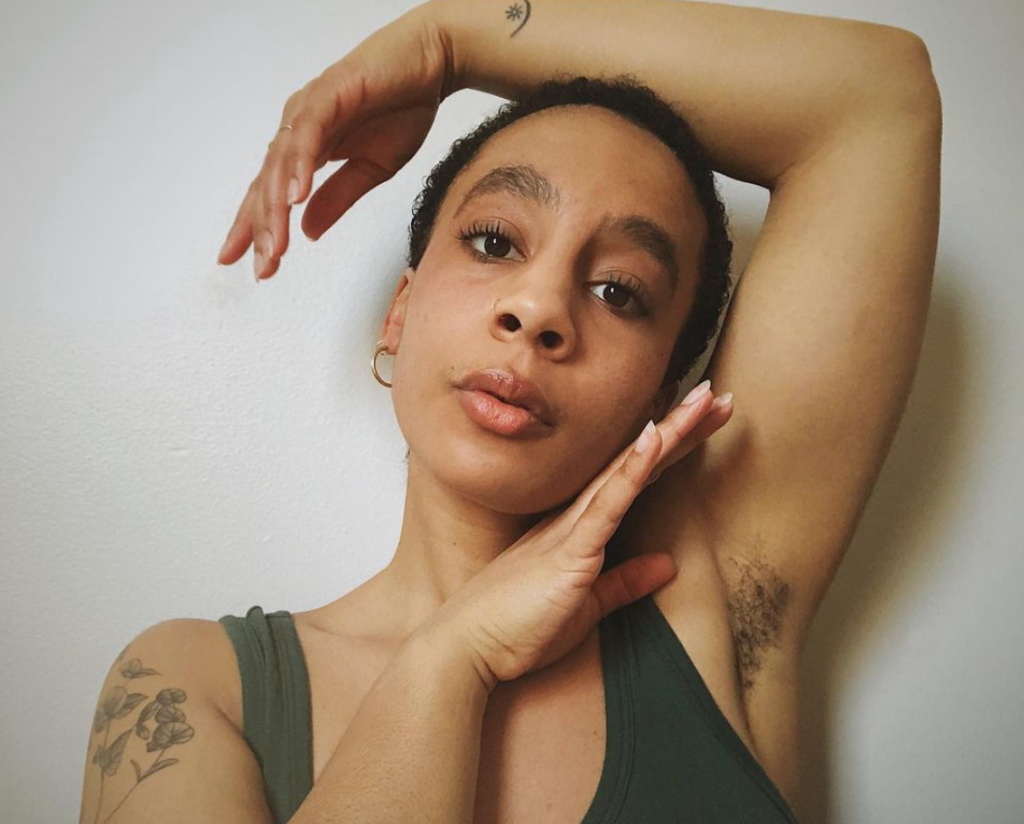
SG: When feeling alone in the fight towards less ethno-centric beauty norms, environmentalism, etc., how do you find support/community. Especially as we transition back into an IRL normal?
Sena: It’s been a little bit of a rough transition. Harder than I thought it would be in terms of the emotional-mental energy that you expel interacting with people in person. But I would say I find community and support in a few ways, the first of which is my family. I’m really close to my mother and my sister and they’re on the same page, in a lot of ways, when thinking about what beauty means and how we present ourselves to the world. My sister is queer so there’s that layer added to her processing and her perception of the world. My mother is white, so she can’t necessarily empathize with her children in the way that she might be able to if she were also a person of color. So there are definitely multi-layered approaches and our lived experiences all bring us towards a certain point of view and how we perceive things. But regardless of those disparate experiences, my mom and my sister are a really fantastic support system for me when I’m feeling either down or frustrated.
Another pillar of support in my life are my close female friends. I feel lucky to have little pockets of friends that have gathered at various points in my life. Like you have your childhood friends, your college friends, your post grad friends (or what have you) and they’ve known me in very different stages of my life. They bring a fantastic outside perspective that I might not necessarily have insight to when dealing with with an issue that’s challenging or difficult.
Also a support for me would be therapy, I’m a huge proponent for it. I was the last in my family to go to therapy, mostly because I thought I didn’t need it. I hadn’t had anything necessarily traumatic happened in my life, no large loss or major incident, so it took me it took me a long time to get over that feeling and I started therapy about four years ago. I’ve been working with the same therapist since then and it’s been enormously helpful, especially through COVID and the transition back into communicating with people in person because it is hard.
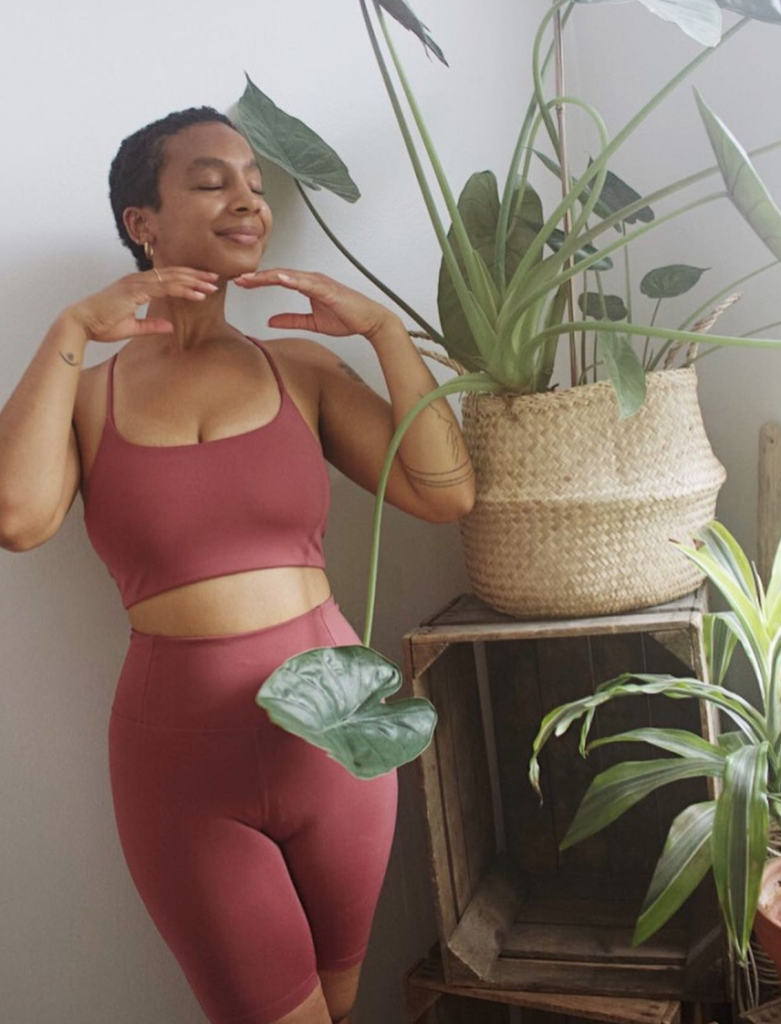
SG: We know that you are all about that eco-fashion (which we love!) — does body image or self esteem ever impact your fashion choices? If so, what advice would you give someone who is struggling with the push for unattainable body standards?
Sena: Body image absolutely affects the clothes that I choose to wear. I feel like I had a little bit of a different experience than the “normal” one that most people had during COVID: In January 2020 I had just got engaged so we were planning a wedding and didn’t know the pandemic was coming. I admittedly fell into the mind trap that I had to look a certain way for my wedding. You want to be confident, you want to feel excited about wearing this white dress, but at the moment I just wasn’t feeling great in my body. I was having a hard time moving through space and I felt a lot heavier, I didn’t feel super confident and the clothes that I was choosing reflected that. I opted for a lot of baggier things. So, I joined a weight loss service because I felt like I needed some additional support and advice on this journey.
My favorite thing about the program was that it was based in science, it was psychology driven, and none of it was pushing elimination in any way. It was just thinking about your consumption habits, how much you were moving in a day. I was like, “Okay, I can get behind that. I work a nine to five, I sit at the desk, I drive to work, there’s not a lot of movement in my day.” That ended up being a really fantastic place to have something to focus on when it all went to shit with my relationship, and I ended my engagement. Throughout quarantine, I’ve actually been more active than I have been probably ever in my adult life. I found myself coming out of quarantine feeling much more confident in my body and opting for different outfits that I might not necessarily have done before. It’s definitely been an interesting shift that I feel is tied to my body image and the fact that I feel really confident in who I am.
A lot of this confidence has also been internal work. I’m working on a lot of my areas of growth with my therapist so there’s definitely a tie between my body image and you know, where I’m feeling comfortable emotionally.
So for anyone reading who is struggling with body image and self esteem, acknowledge that there are going to be ebbs and flows to how you feel about yourself and respect those. On Sunday you might feel a little bit better and on Monday you might feel a little bit worse. Acknowledge that, respect that and know that it’s okay. You don’t have to present the same version of yourself to the world all the time, because that is unrealistic and unsustainable.
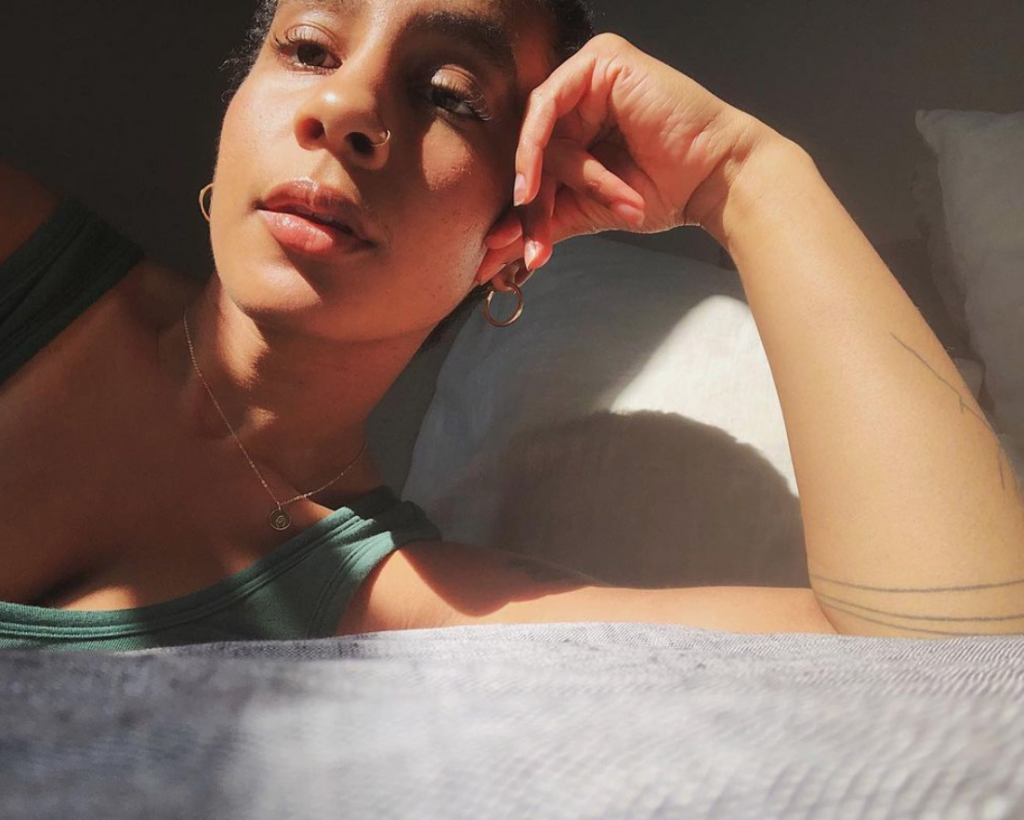
SG: What is your biggest pet peeve with the beauty and body care industry/what would you love to see changed in the future?
Sena: Where to start? Off the bat, I have an issue with the fact that there’s a beauty industry period. Like, the fact that we feel like there needs to be products in order to make us look better, feel better, smell better, be softer to the touch — I think it’s pretty indicative of the fact that we as a society believe women need to change who they are. So, I feel the largest pet peeve I have is the fact that it exists…and then I turn around and actively participate in it. It’s kind of like being stuck between a rock and a hard place. I dislike it yet, I still buy into it.
Another pet peeve I have is the safety of beauty products. I mean, the first time I learned what Nair was, I was like “This cannot be good for you. It can’t be good to put something on your body that literally makes your hair fall out.” What is in this stuff and how is it being absorbed into your body via your skin? Going back to my mom, she’s always been a really big supporter of organic products, where you can understand the ingredients. The more simple the better. And so in that vein, I dislike the fact that so much of what is produced is inaccessible for a consumer to understand what it is exactly. There’s always like 18 different ingredients that I couldn’t even tell you how to pronounce. That’s a problem for me. If I could change something in the future, it would be to boil down the different products available to the essential elements so that we know what we’re purchasing and putting on our skin.
SG: What piece of body or self love advice would you have given to your younger self?
Sena: I would wager that my answer would would shift depending on where I was in my life. But if we’re talking to 16 year old Sena, I’d say: Be comfortable in your blackness and understand that you’re not ever going to look a certain way. And that is okay. I really enjoyed the recent advent of Black girl magic and really celebrating having melanin and dark skin. I’ve really loved that and it’s resonated with me in some ways. But on the other hand, I’m biracial and I was raised in Central Pennsylvania where I was homeschooled. I do not have the lived experience that people often associate with somebody with my skin tone. So it’s also been an interesting experience to look the way I do, but still have this background. Regardless, I would tell my younger self to lean into your blackness and understand that it’s beautiful in its own way. Don’t work to shimmy and shift and constrict yourself in order to feel like you’re beautiful in the “traditional” sense of the word. A piece of advice I would give to my 26 year old self would be to just accept the various iterations of yourself — mentally, emotionally and physically. And understand that whatever partner you have, if you have one, should be able to accept all versions of you. Whether you’re working through shit, whether you’re struggling with shit, whether you feel like you’re on top of the world, etc. Having somebody in your life who’s going to be transparent, honest, and support you as you navigate those changes is going to be really key.
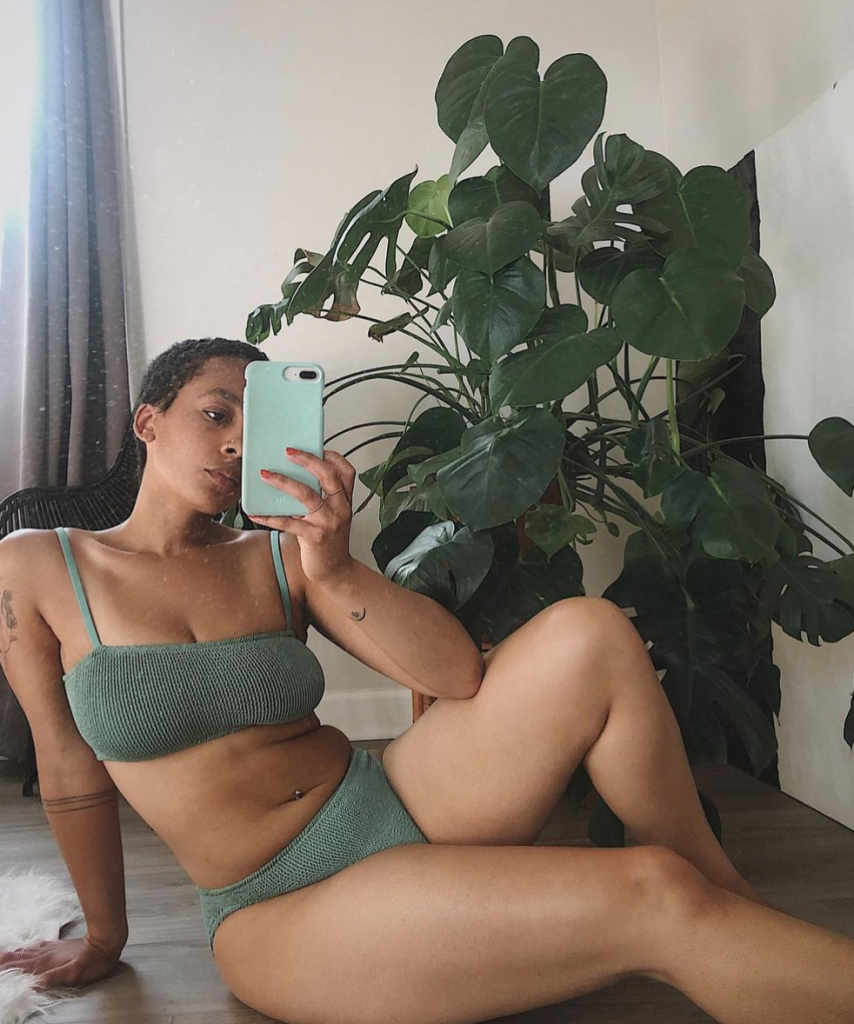
SG: Do you have any self care practices or mantras that help you through hard body-love/mental health days that you would recommend to others?
Sena: I’ve always wished I were more into things like yoga and meditation, but I’m not. I really want to be, but that’s not that’s not my truth. I do meditate on occasion and find that really helpful, but only when I feel called to. It’s not something that I try to force every morning or on a daily basis and then end up getting stressed about. So something that I always do if I’m feeling down or having a hard mental health day: I’ll always go outside. That was one of my saving graces during the pandemic even when it was like -30 in Chicago with a windchill. Like I’m stubborn as hell, I’ll still go out on my walks just to get out of the house and see some nature. Of course in Chicago, there’s a lot of snow and a lot of dirty snow, so nature is what’s available to you.
The other thing that I that I practice pretty regularly when I’m feeling both happy and sad is journaling. I’ve been journaling my whole life and I find that really helpful. But similarly to meditation, I don’t ever push it. I don’t ever feel like I have to do it every day, it’s more so when it feels like it’s going to be helpful and useful and serve me in the way I need to.
SG: Who is someone that inspires you?
Sena: This won’t surprise you based on the thread in our conversation, but my answer is my mother. She is one of the most kind, calming and soothing people I’ve ever met in my life. And she loves people, children and the environment in ways that I can only aspire to do. She is a hardcore environmentalist and she has not gotten on the plane in the better part of 15 years. Drives a hybrid, belongs to CSA, she’s very much in this space and has been for a long time. And it’s important to note that that comes from a like a point of privilege. It is an investment of financial standpoint to be able to do those things and purchase organic products for the home, but she’s always made that a priority in our life. I definitely admire her dedication to protecting the environment as well as nurturing herself and the people around her. Since I was homeschooled I spent a lot of time with her growing up and felt like I have I got to know her in a way that maybe not all children do.
SG: Just for fun, what’s your go-to morning beverage or something that makes you excited to start the day?
Sena: So recently, I’ve been super keen on decaf Earl Grey tea with some oat milk in it. Nooot so much a vibe when it’s 90 degrees outside, but for the better part of the year, that’s kind of where I go. And then on the weekends, it’s always a smoothie, especially especially in the summers! I really love starting the day with whatever’s in my fridge. I’m not that creative with smoothies and I always hear other people’s concoctions and I’m like, “I would literally never think to put those together.” But it works for me!
//
It was such an honor to feature Sena for this month’s ‘GOOD Talks’. She is a wealth of knowledge on sustainability, confidence and self love and we continue to be so inspired by her. If you resonated with her story and perspective, follow her for more insights!
And for more convos on #bodytalk, come join us over on the Shop Good IG, where we’ll be talking all month long about these beautiful, confusing, magnificent bodies we all live in.
x


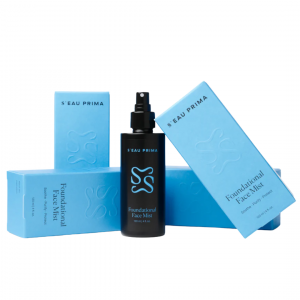
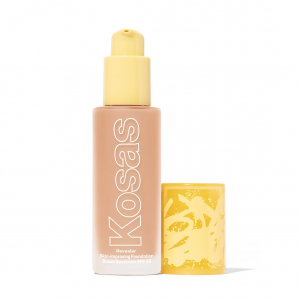
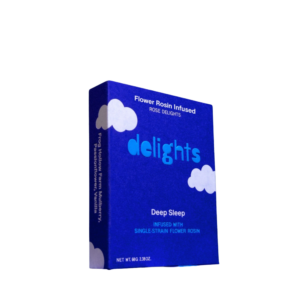
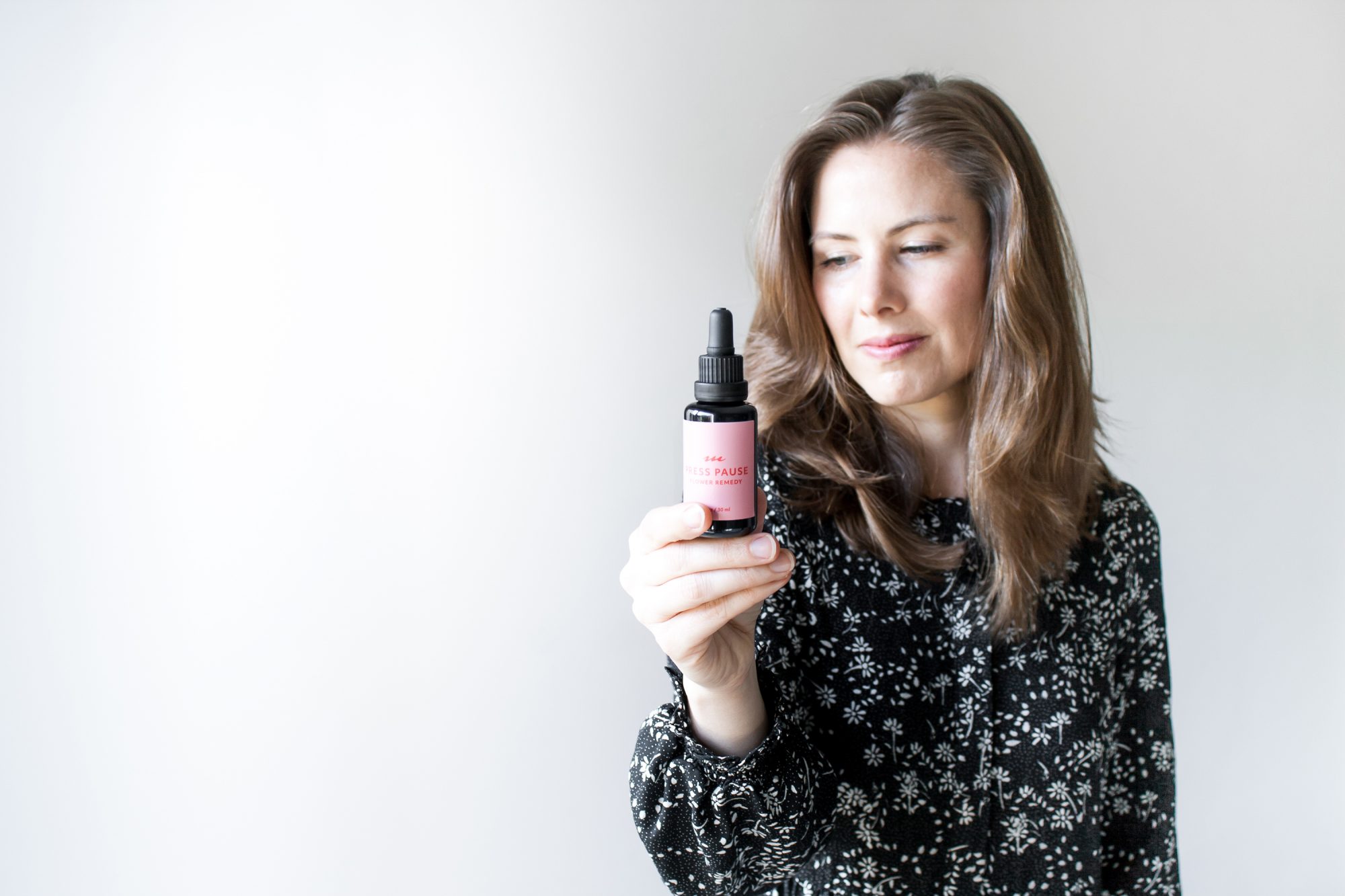
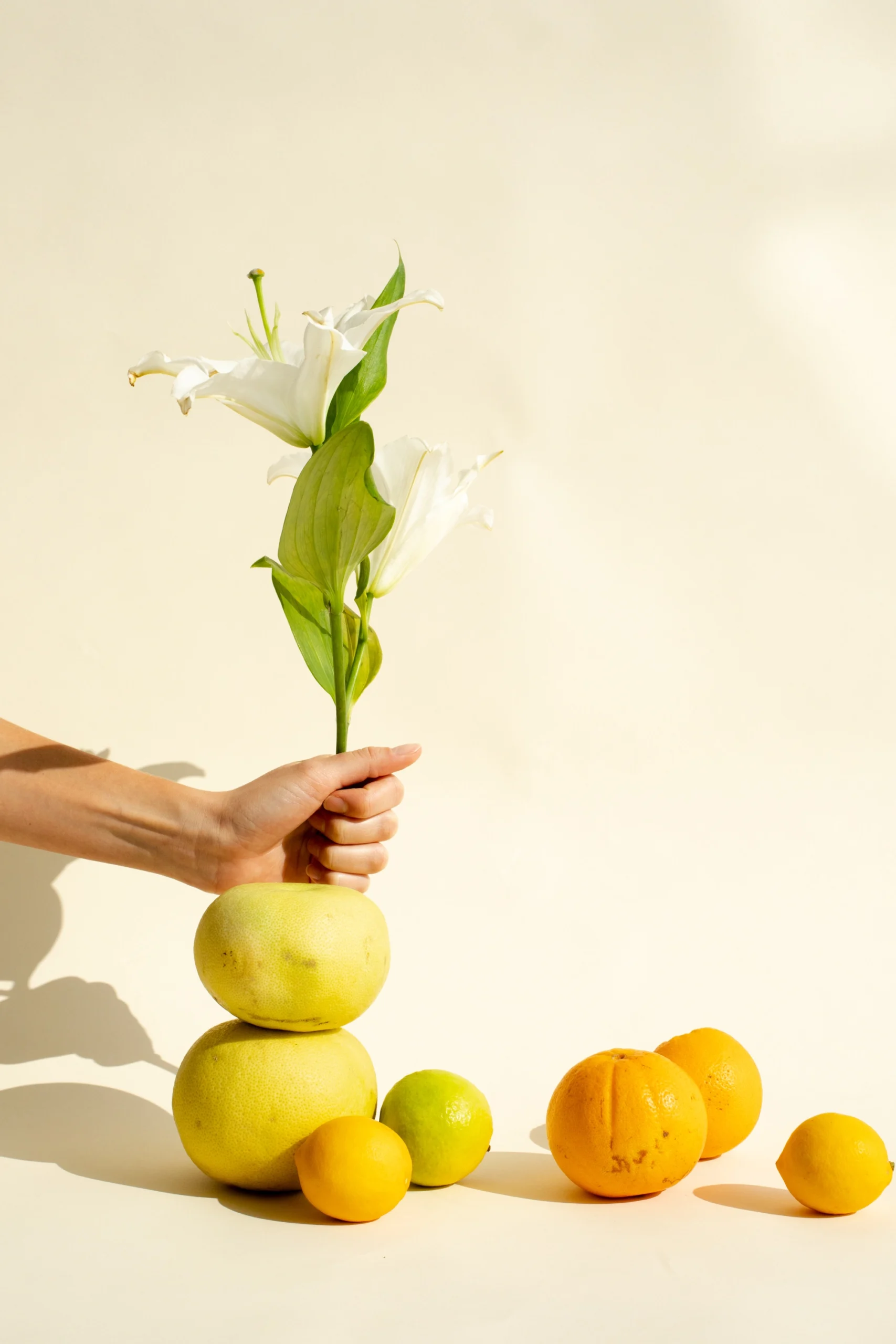
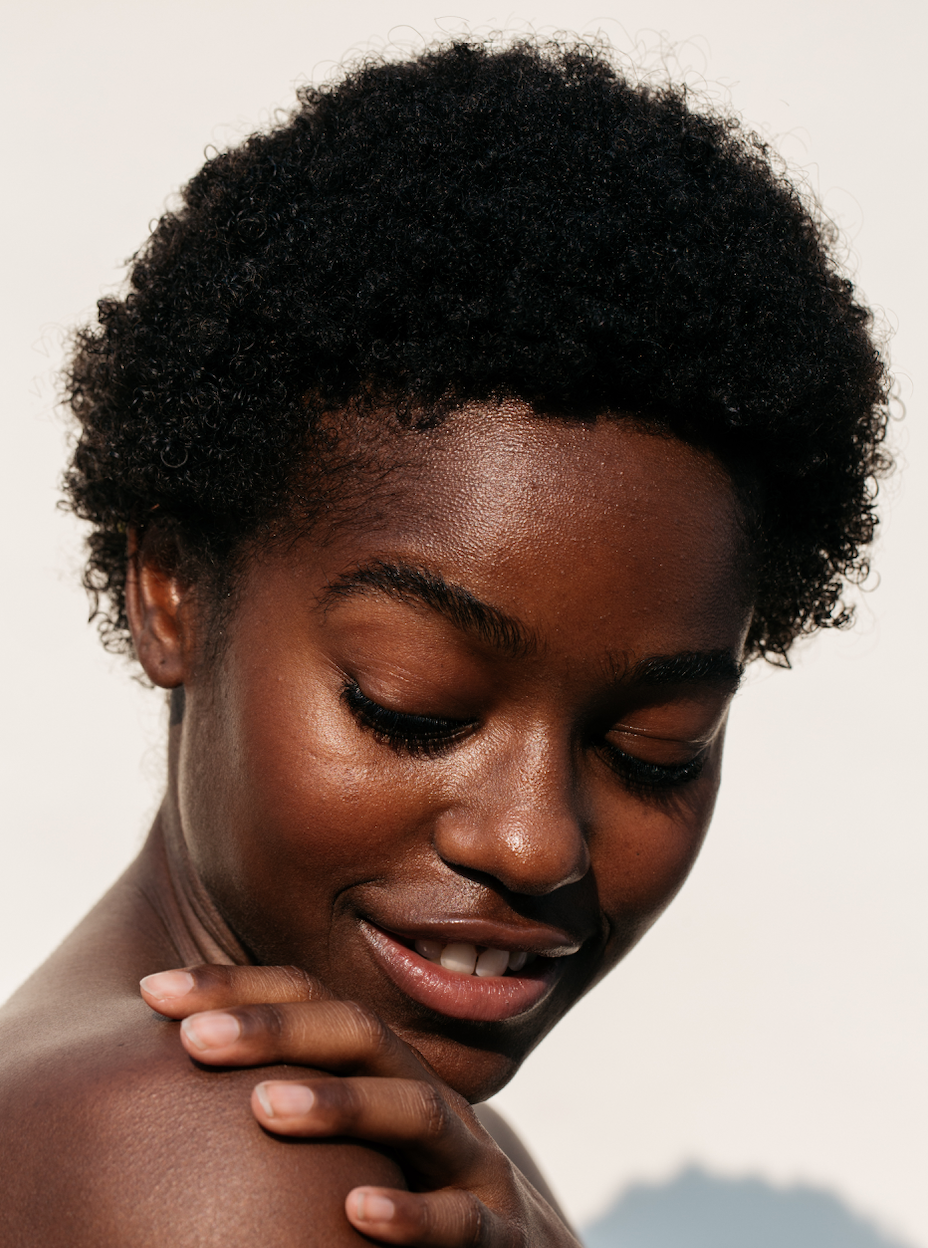



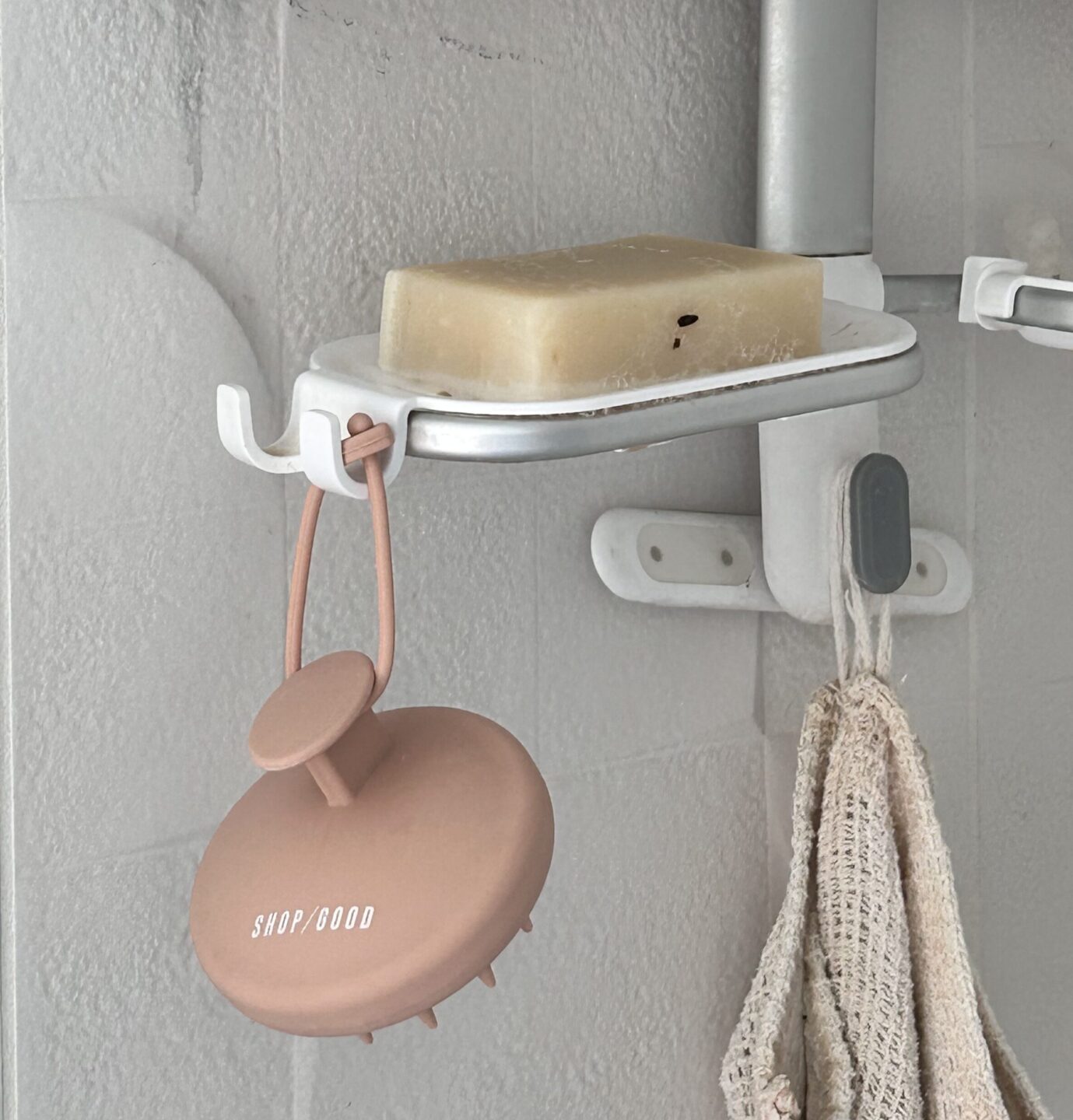
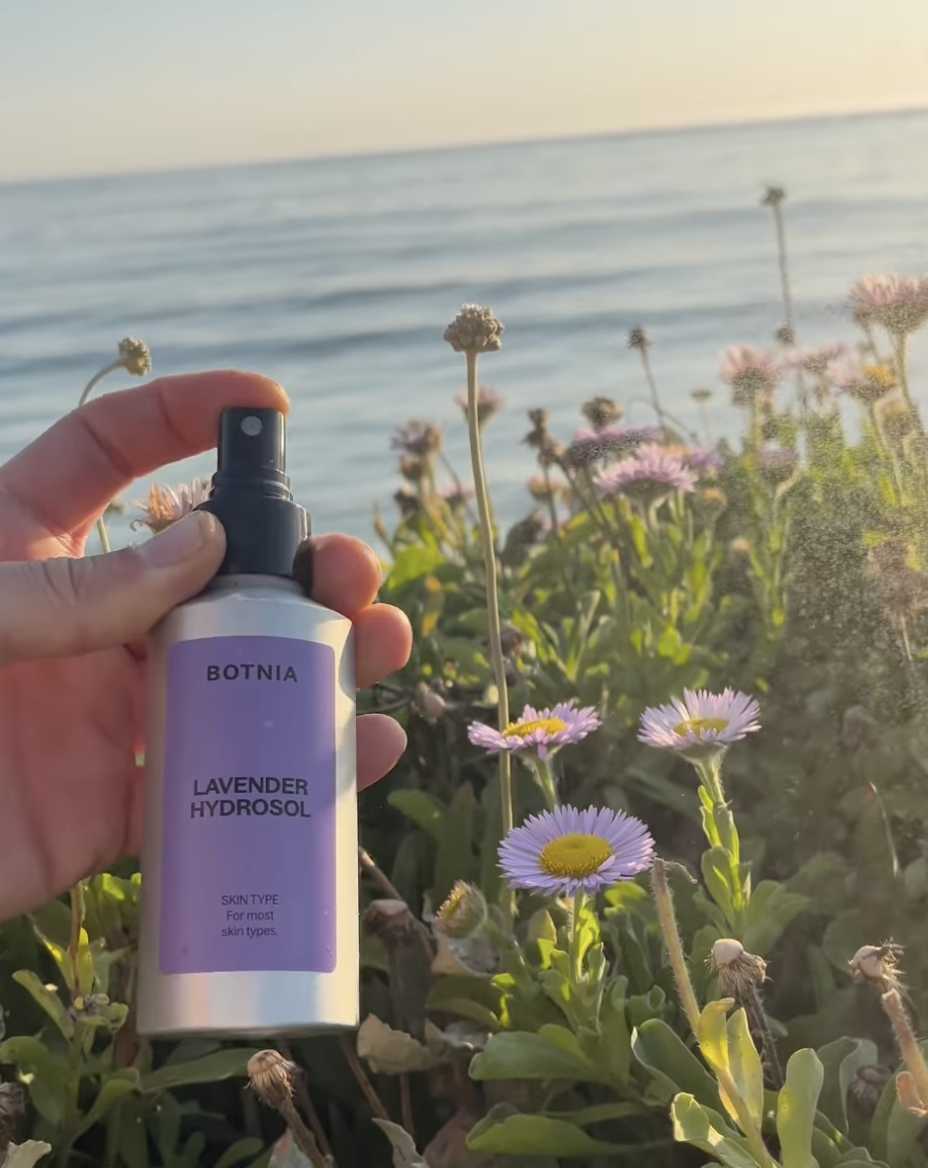
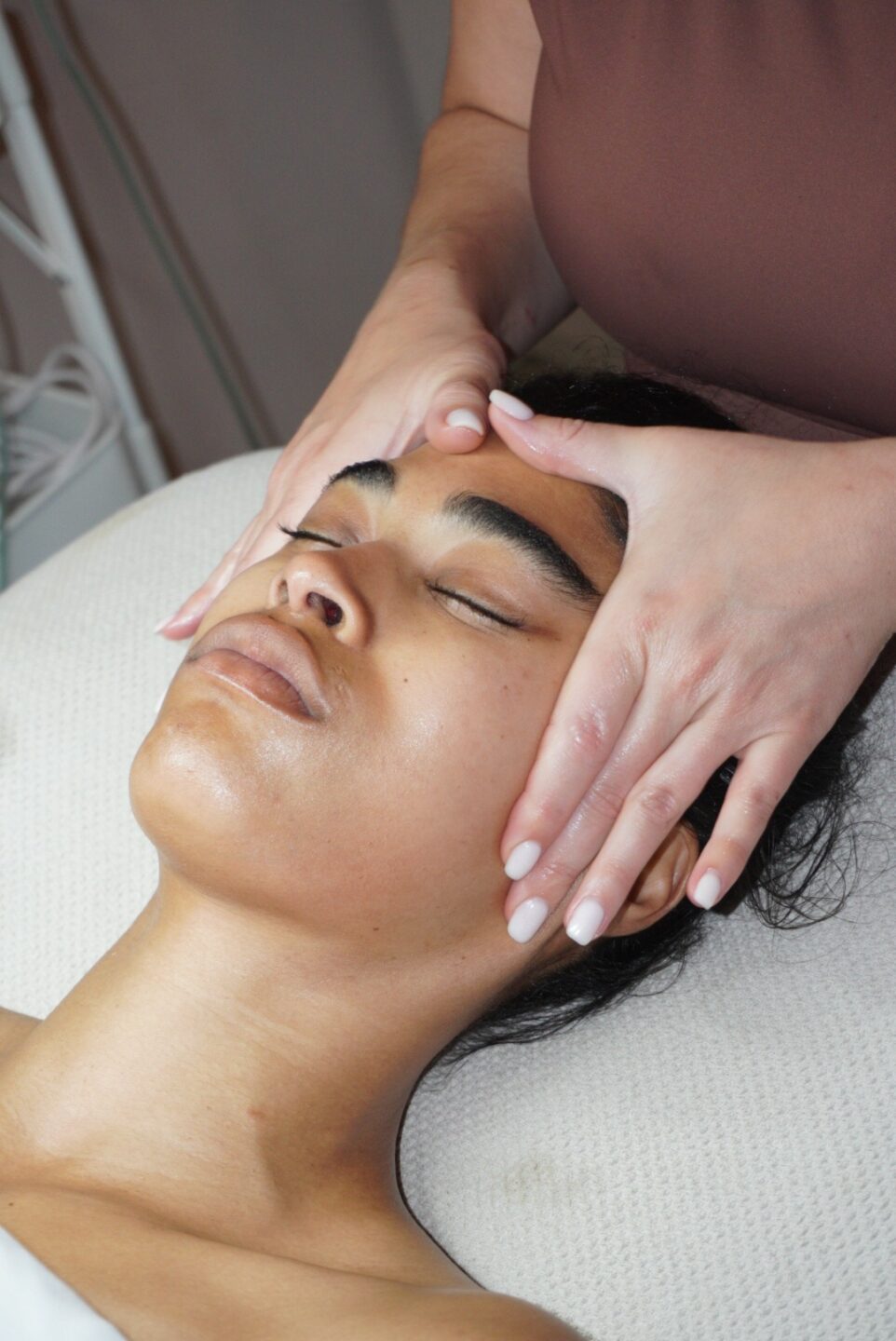
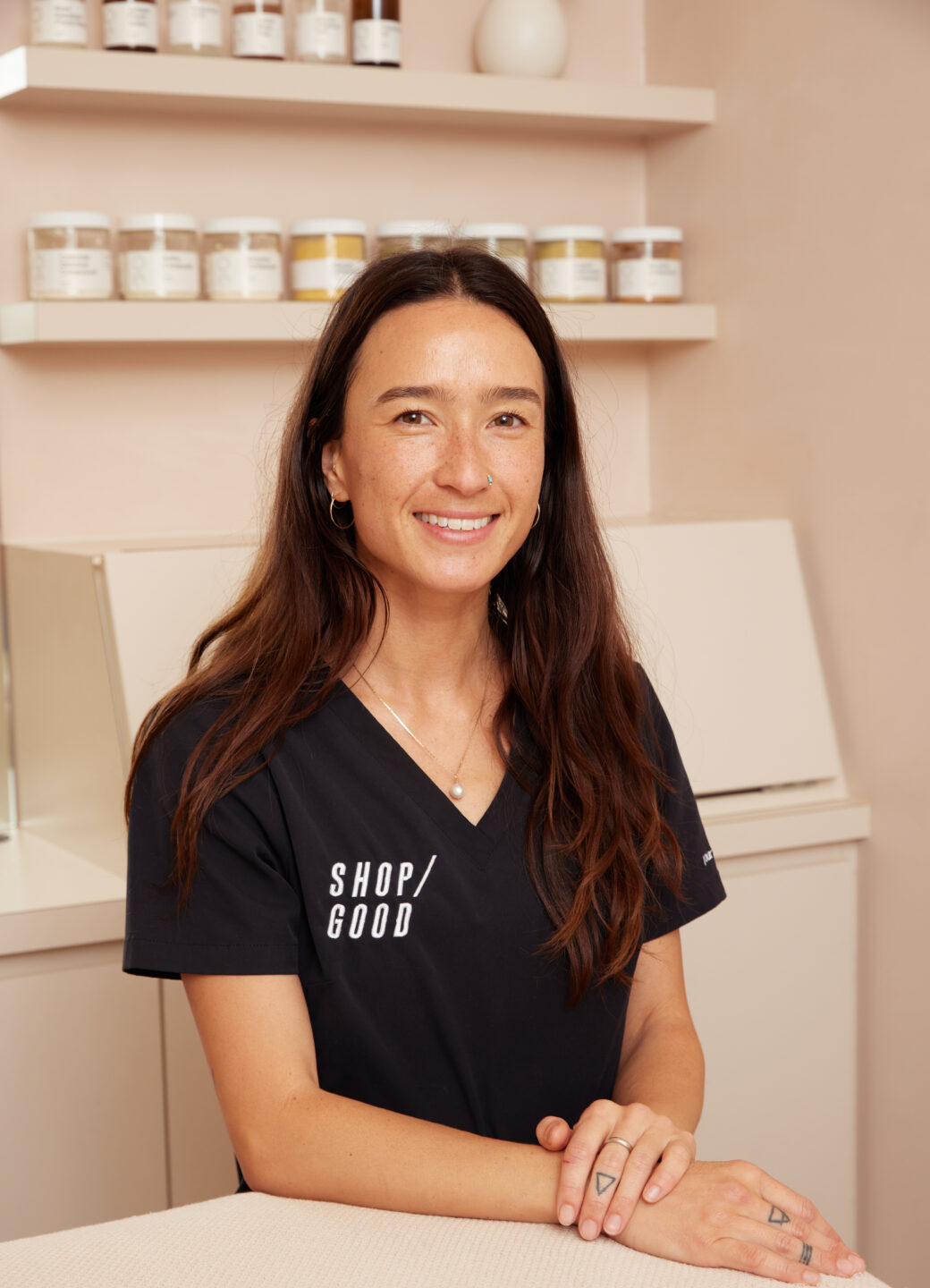
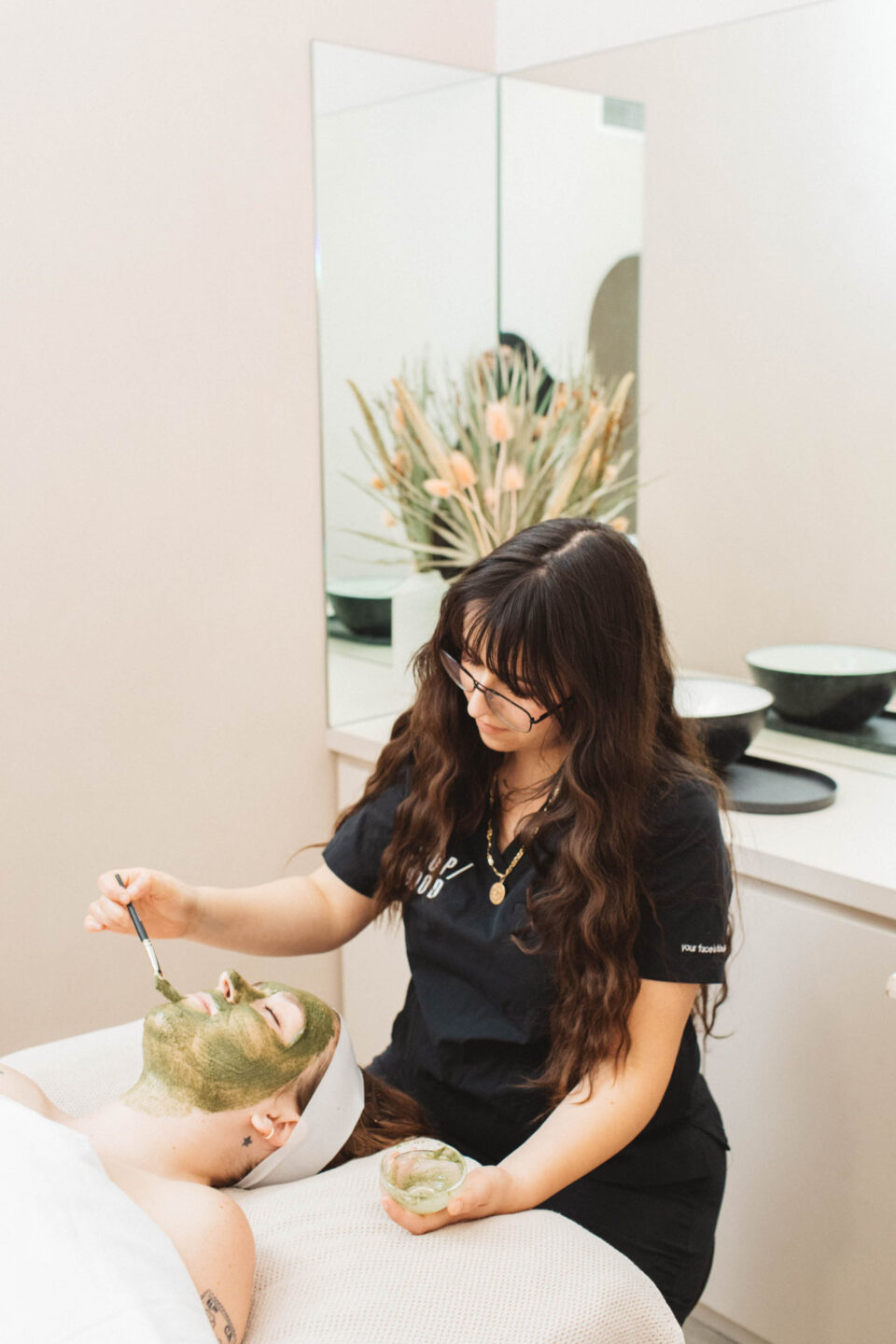
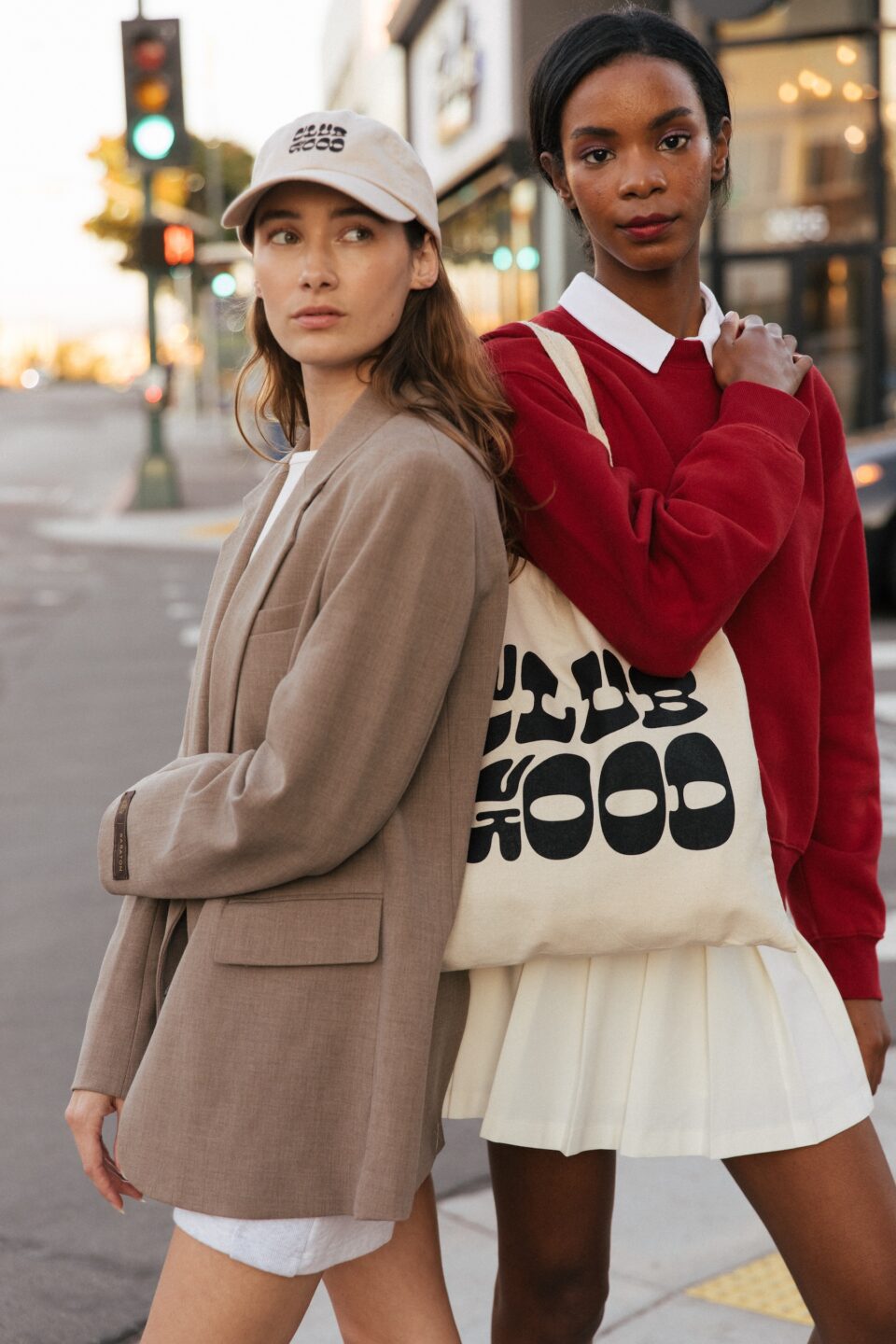
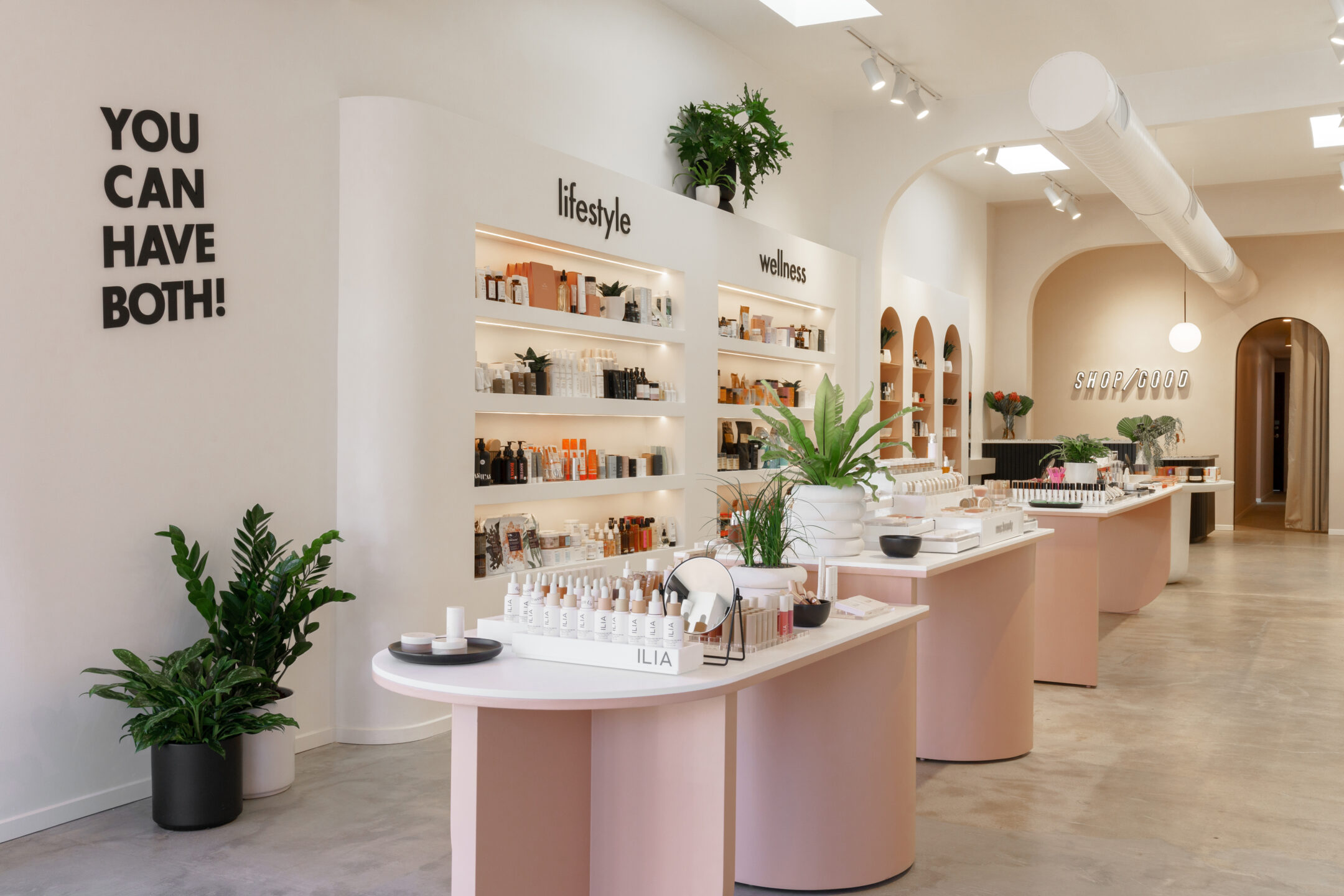
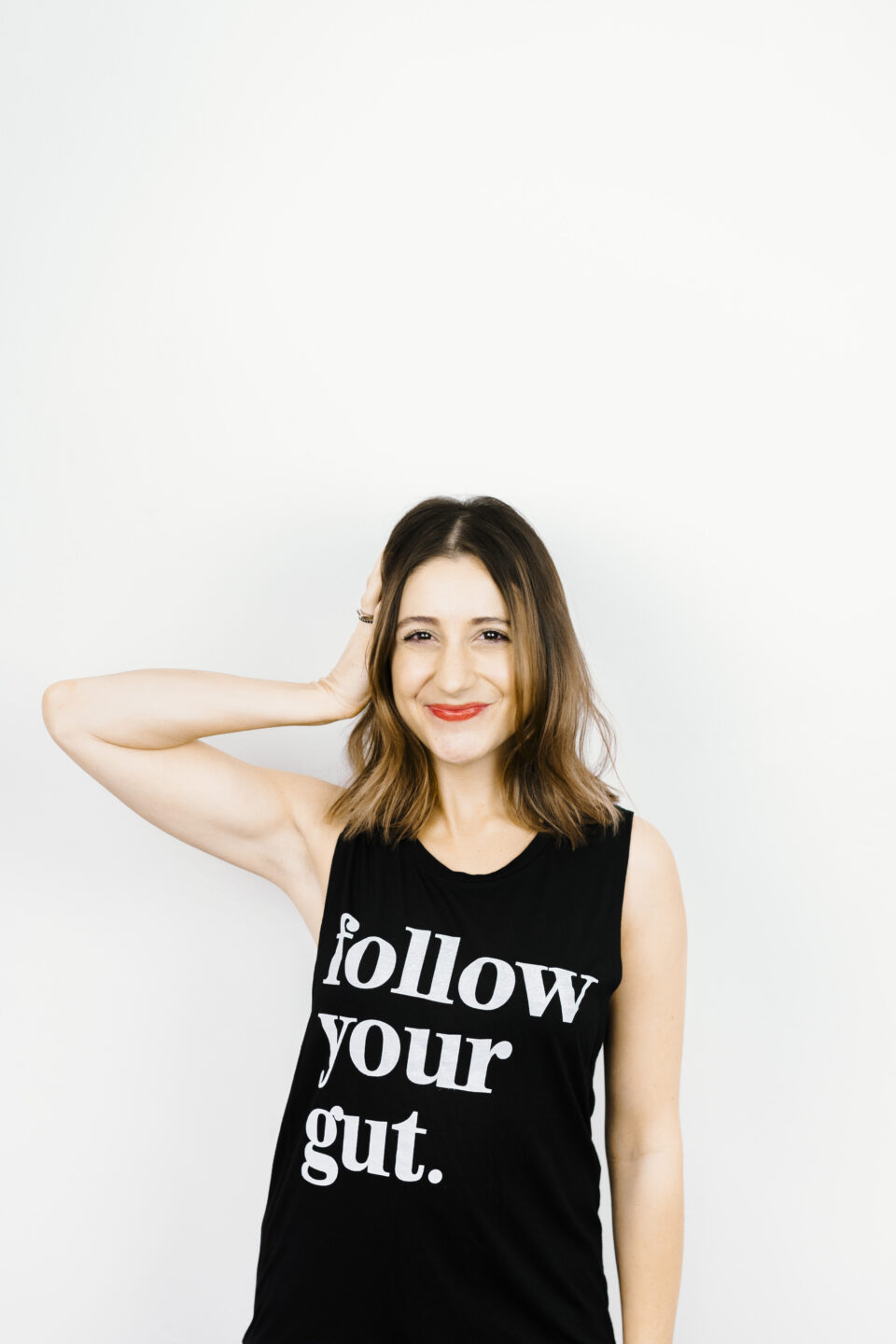
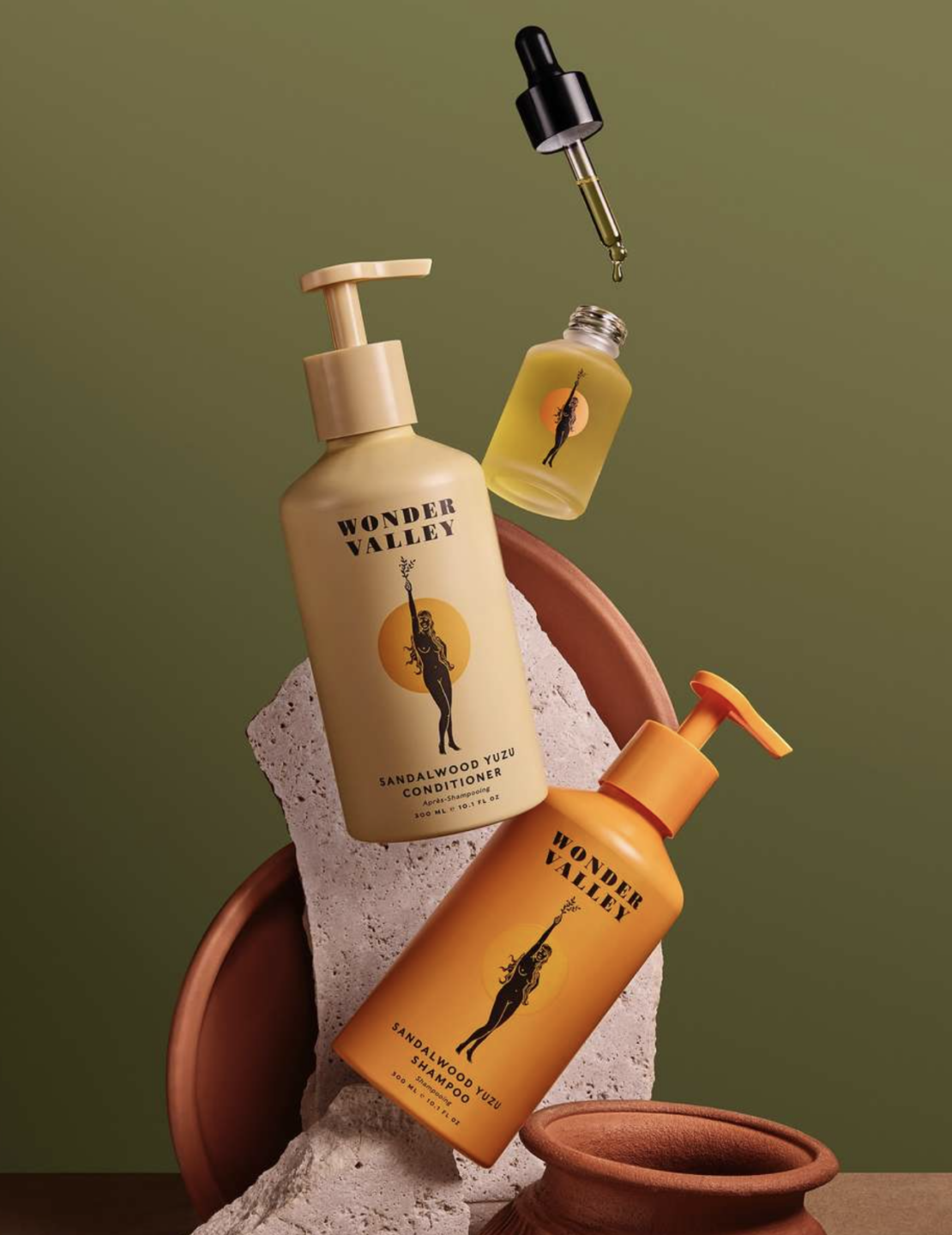

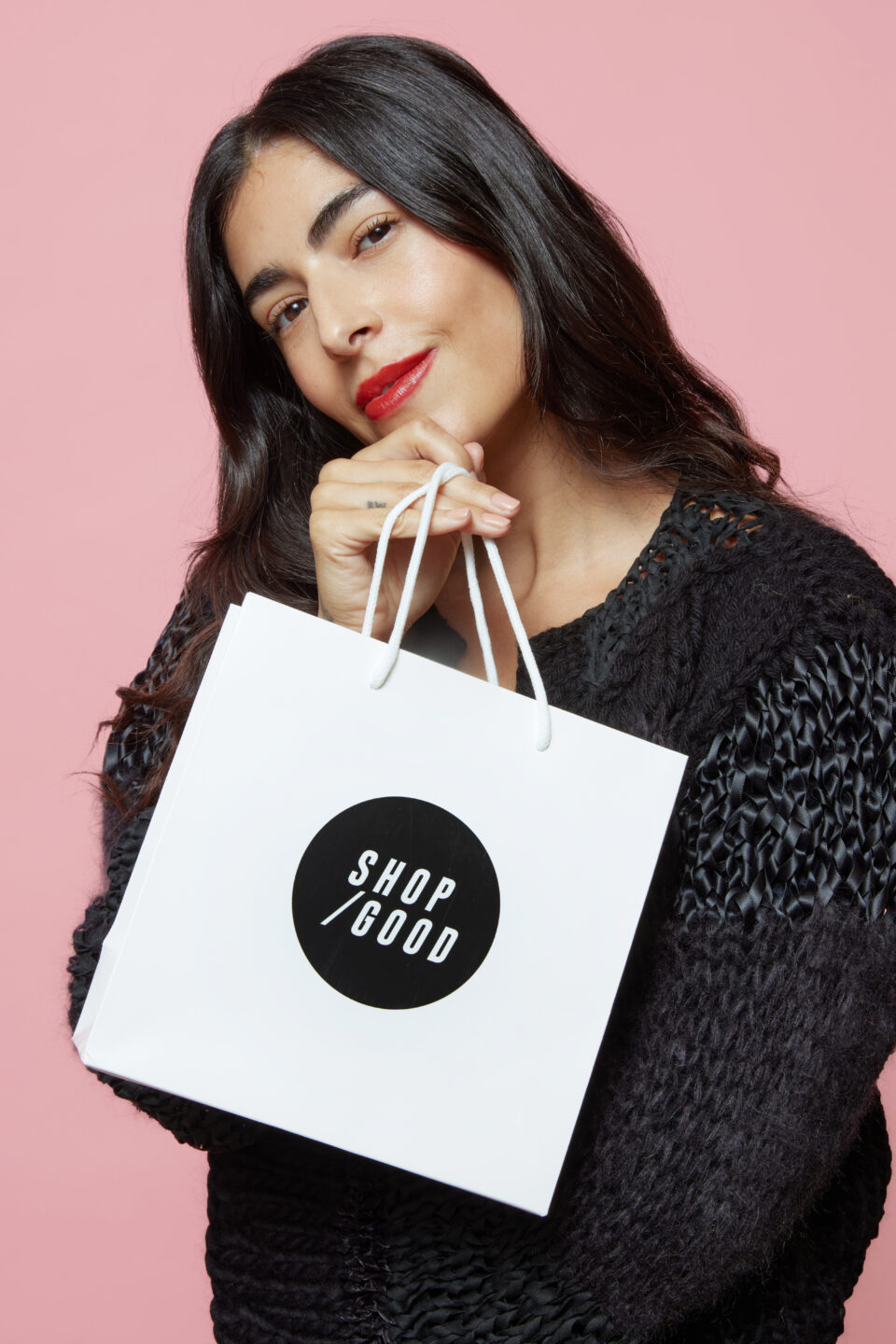
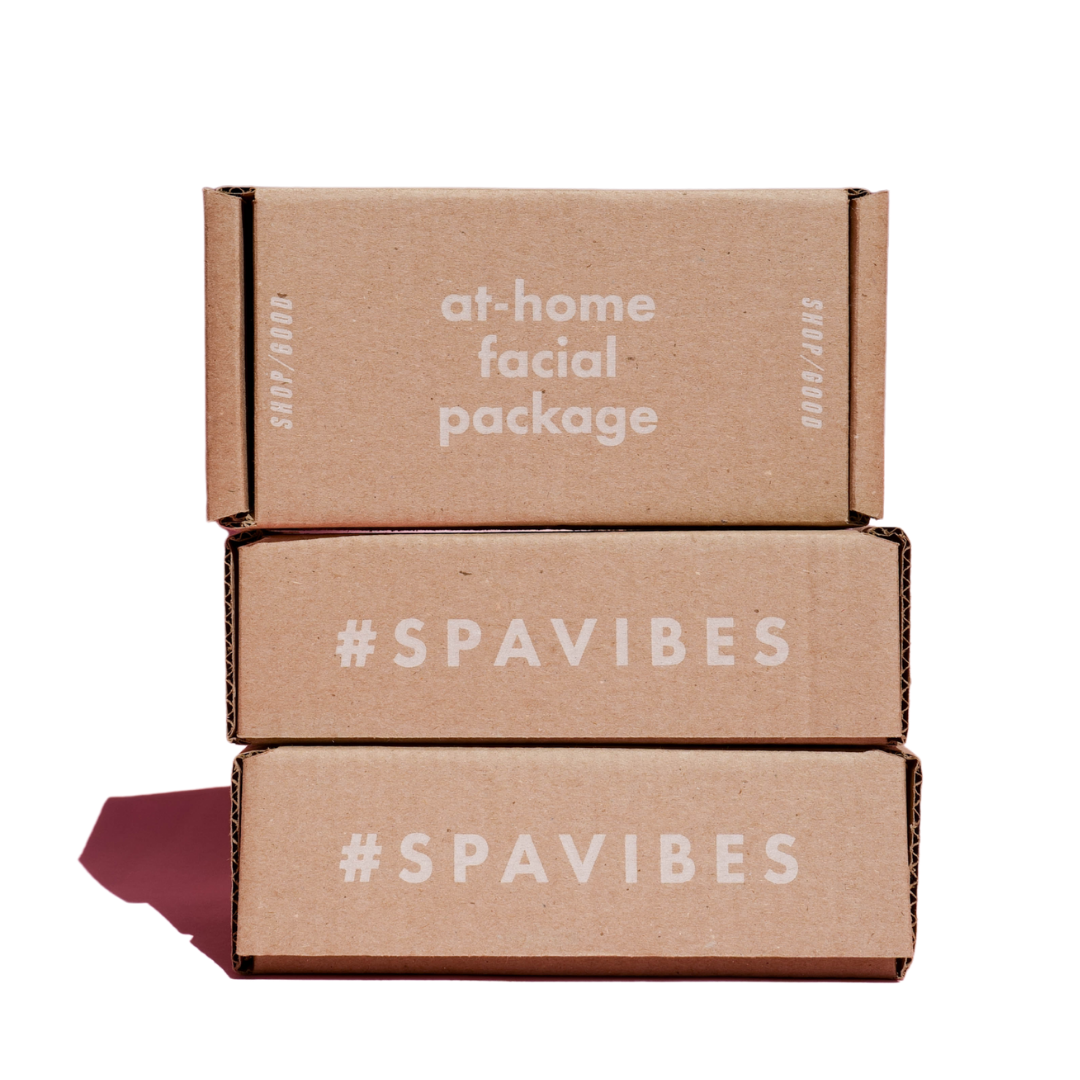
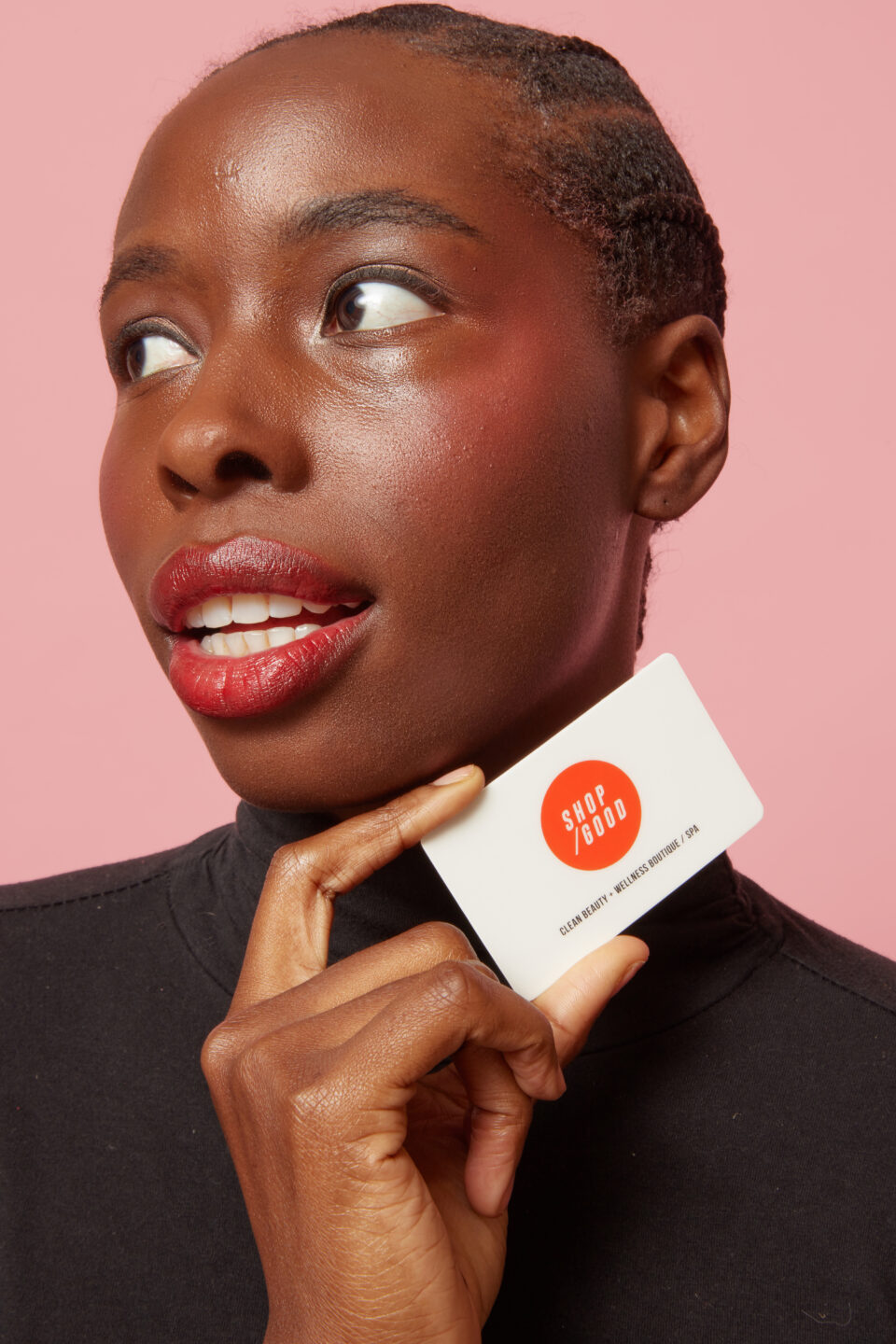
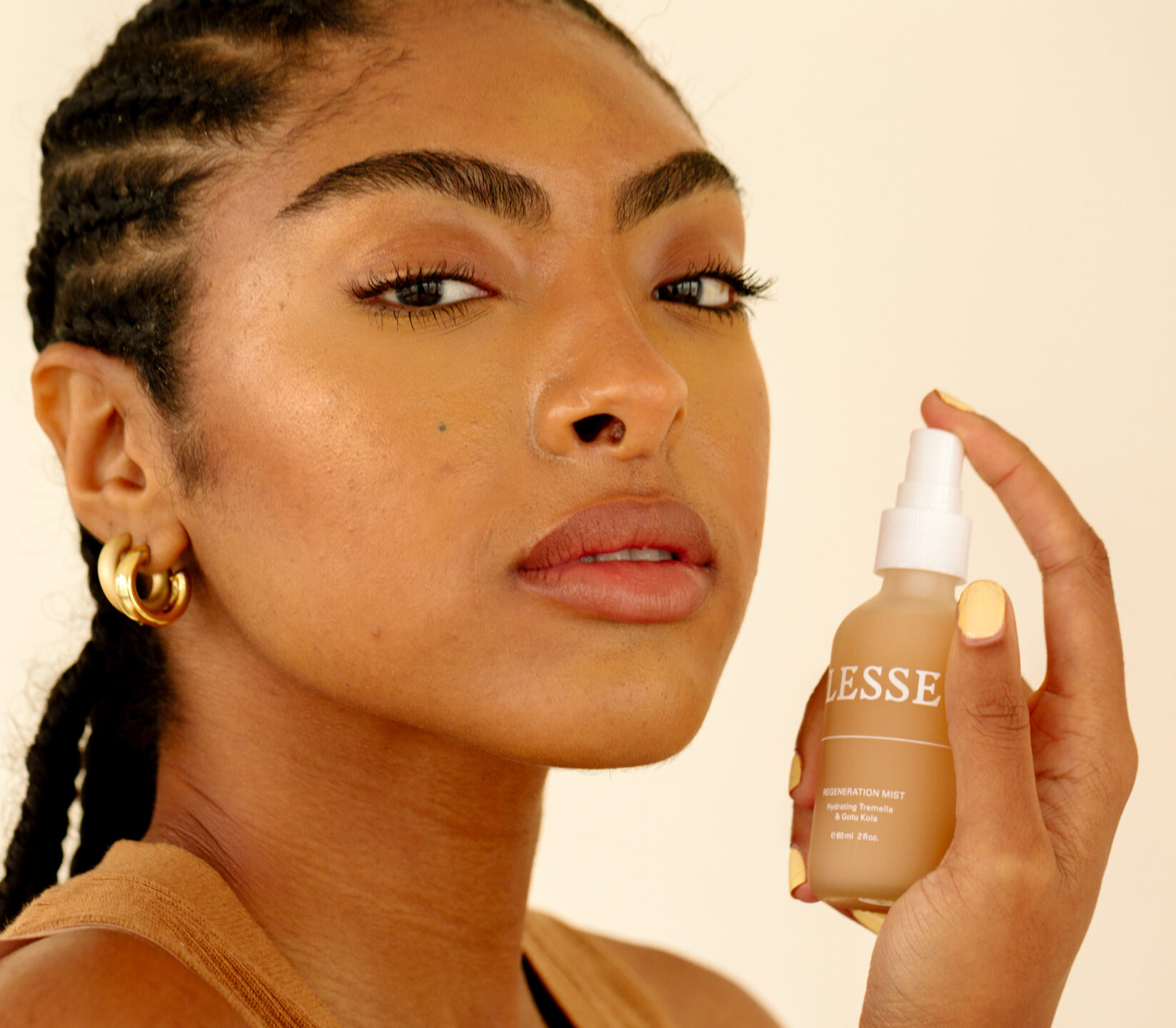
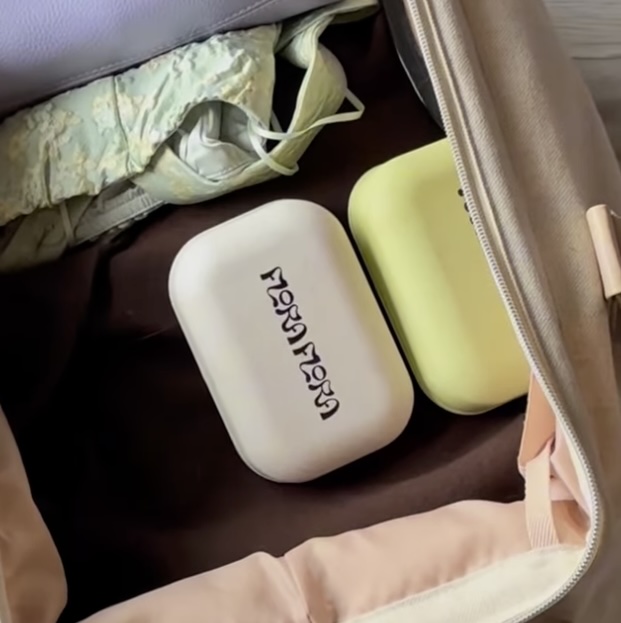
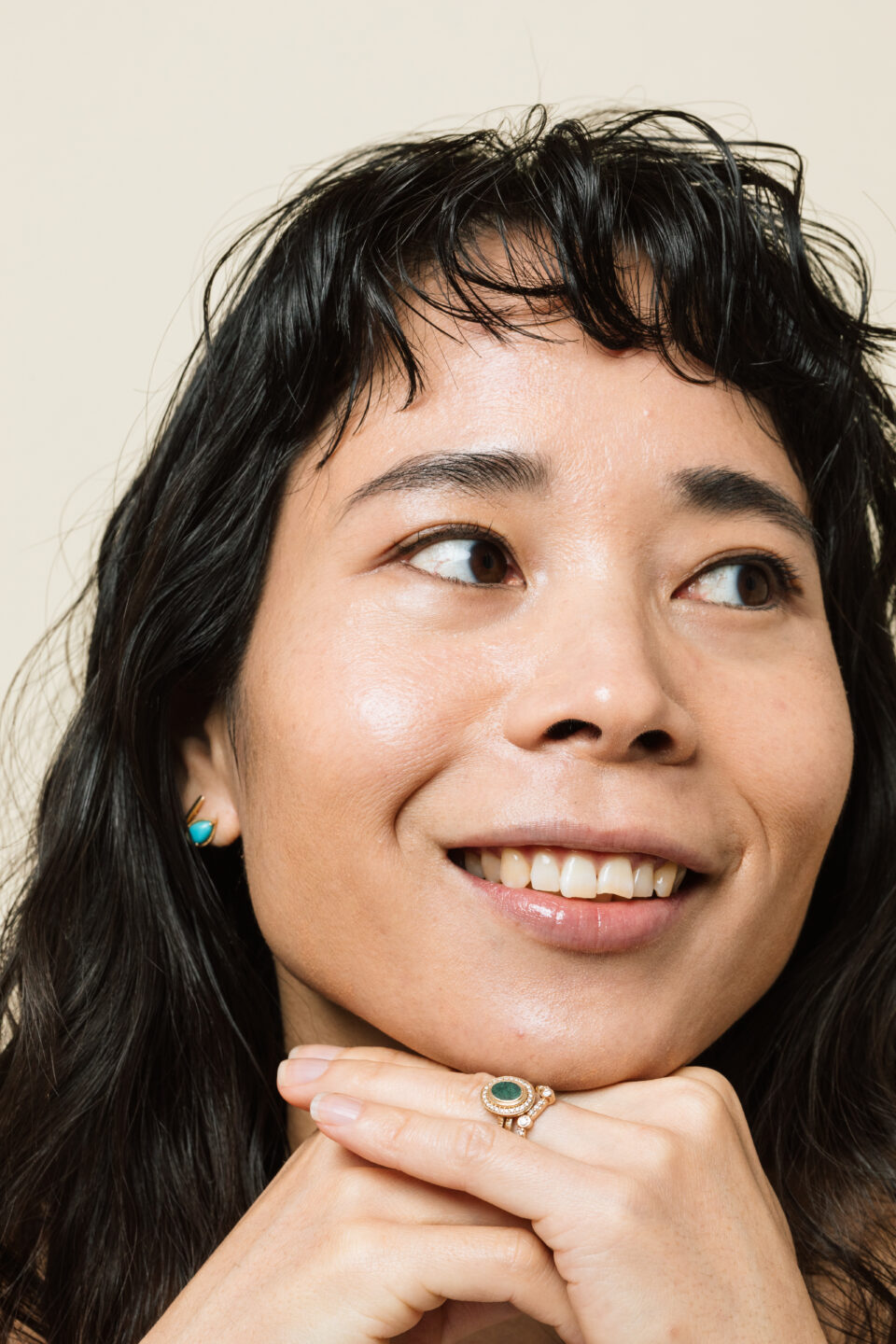
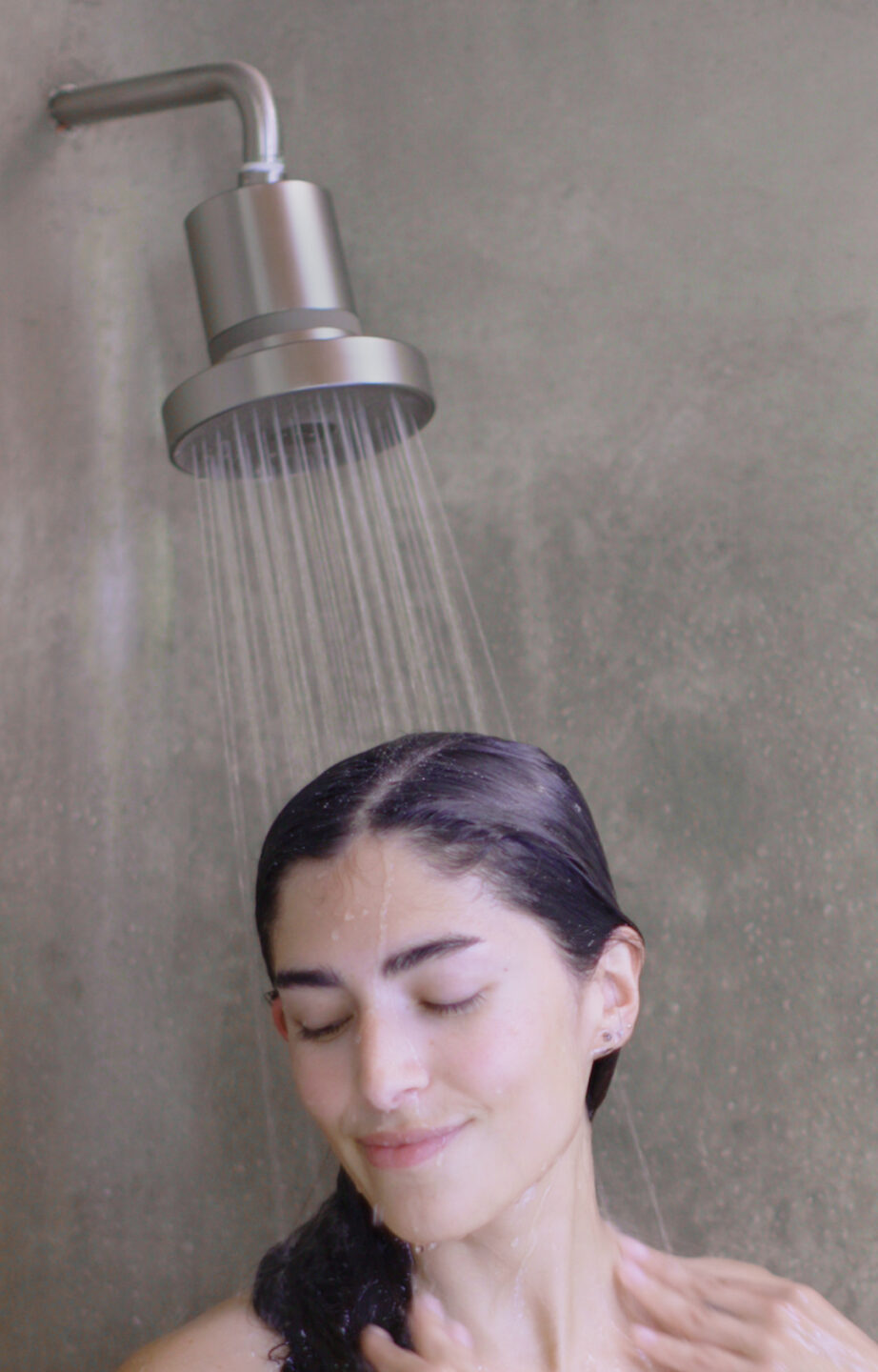
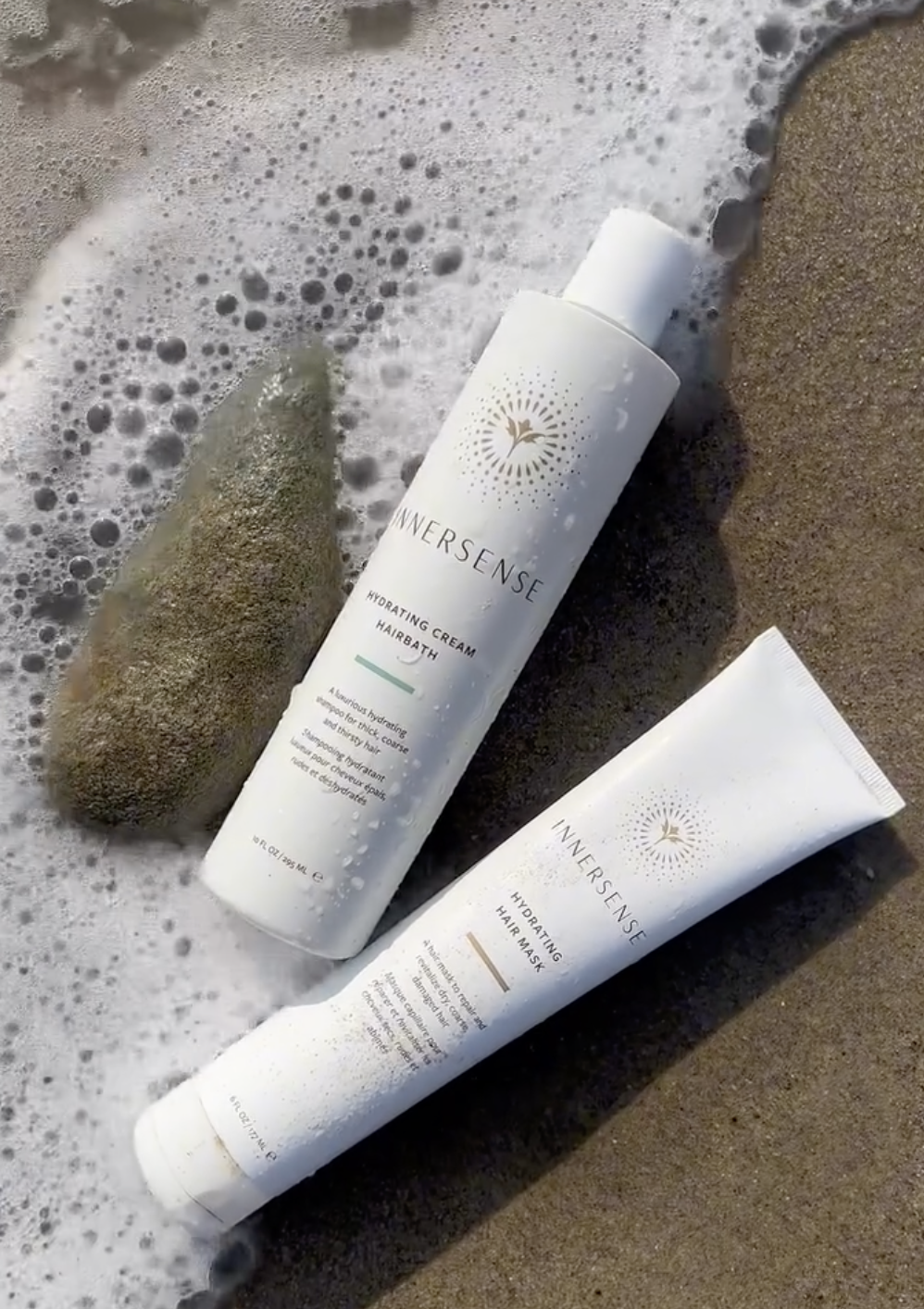
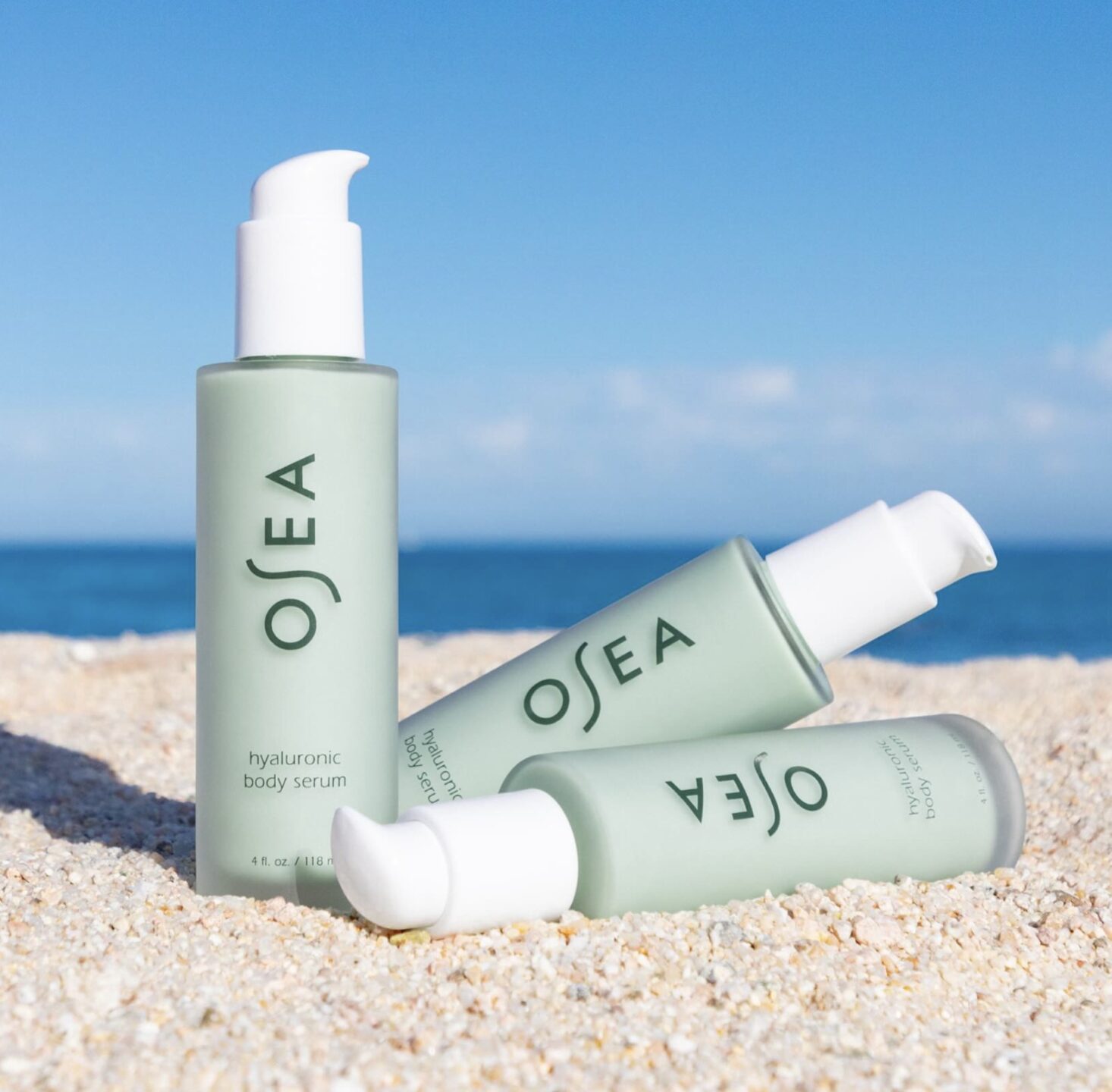
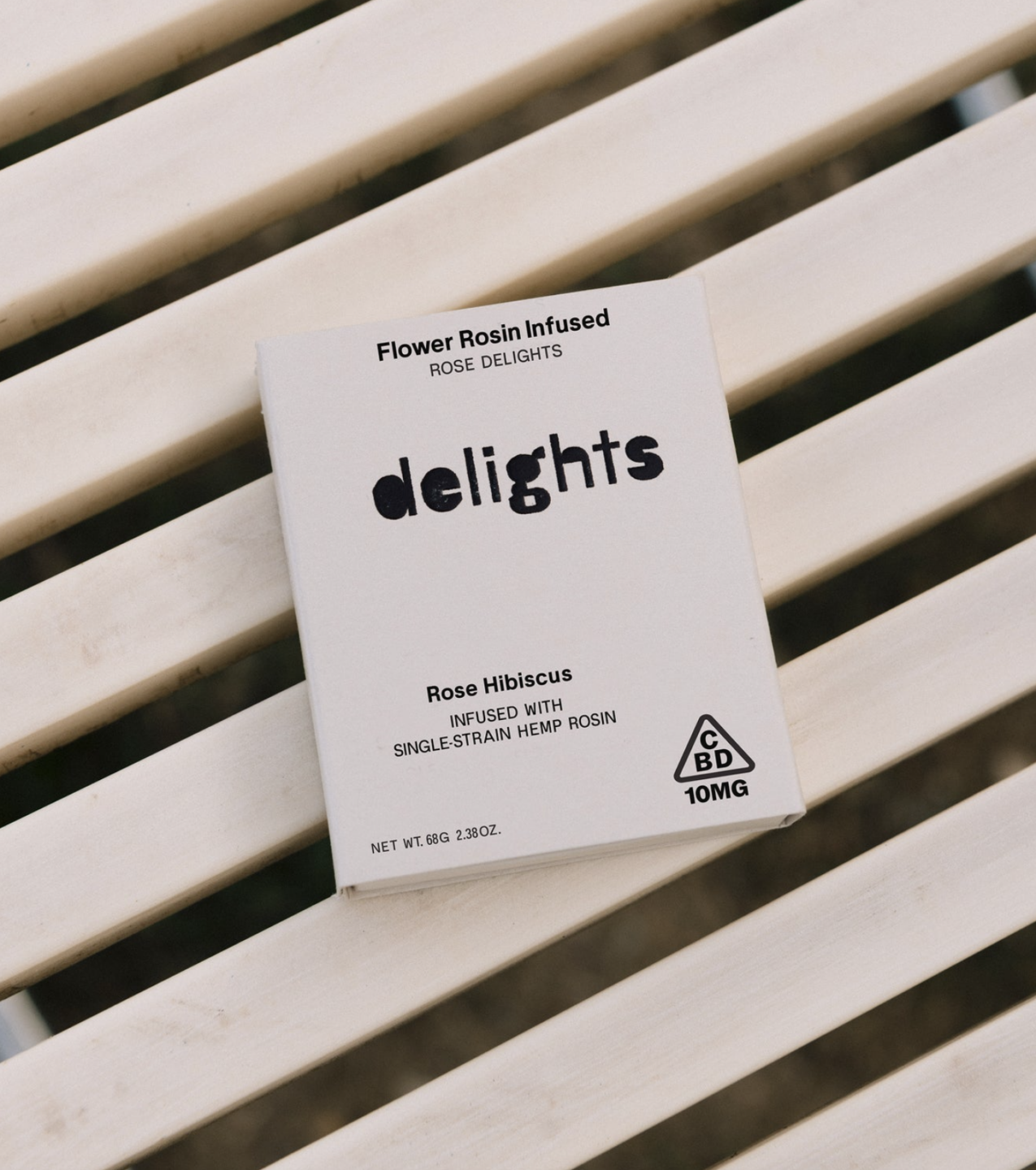
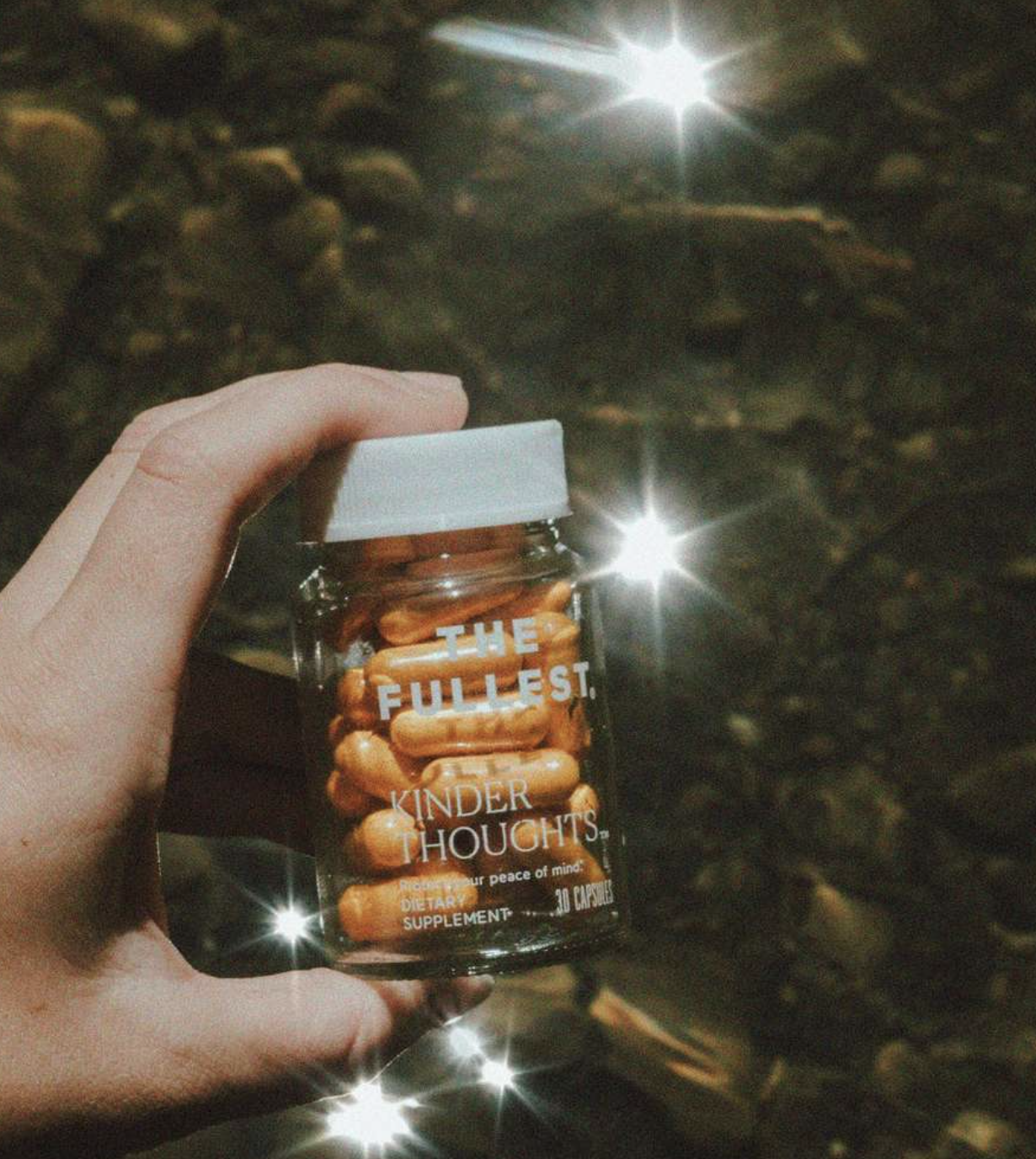
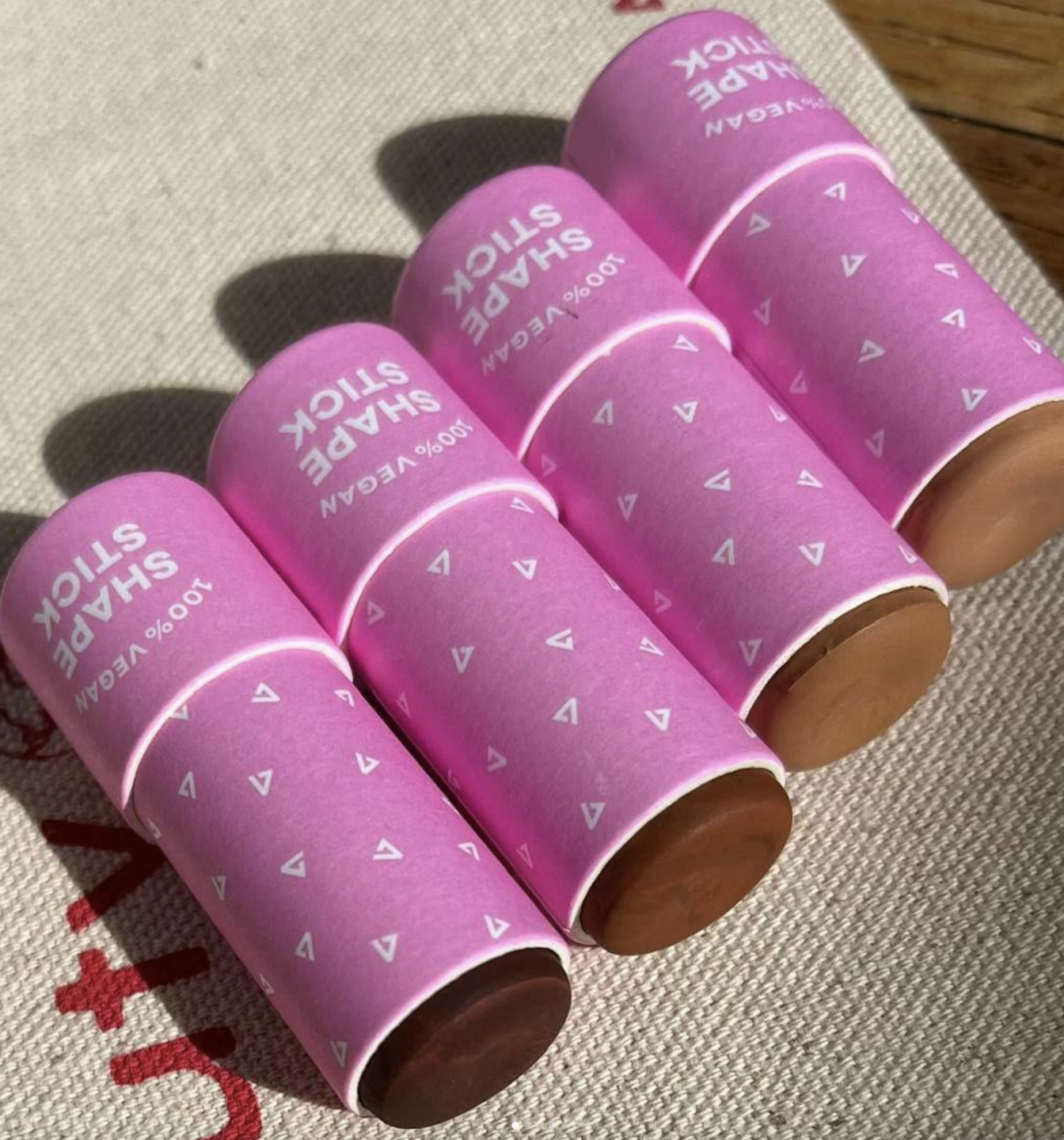
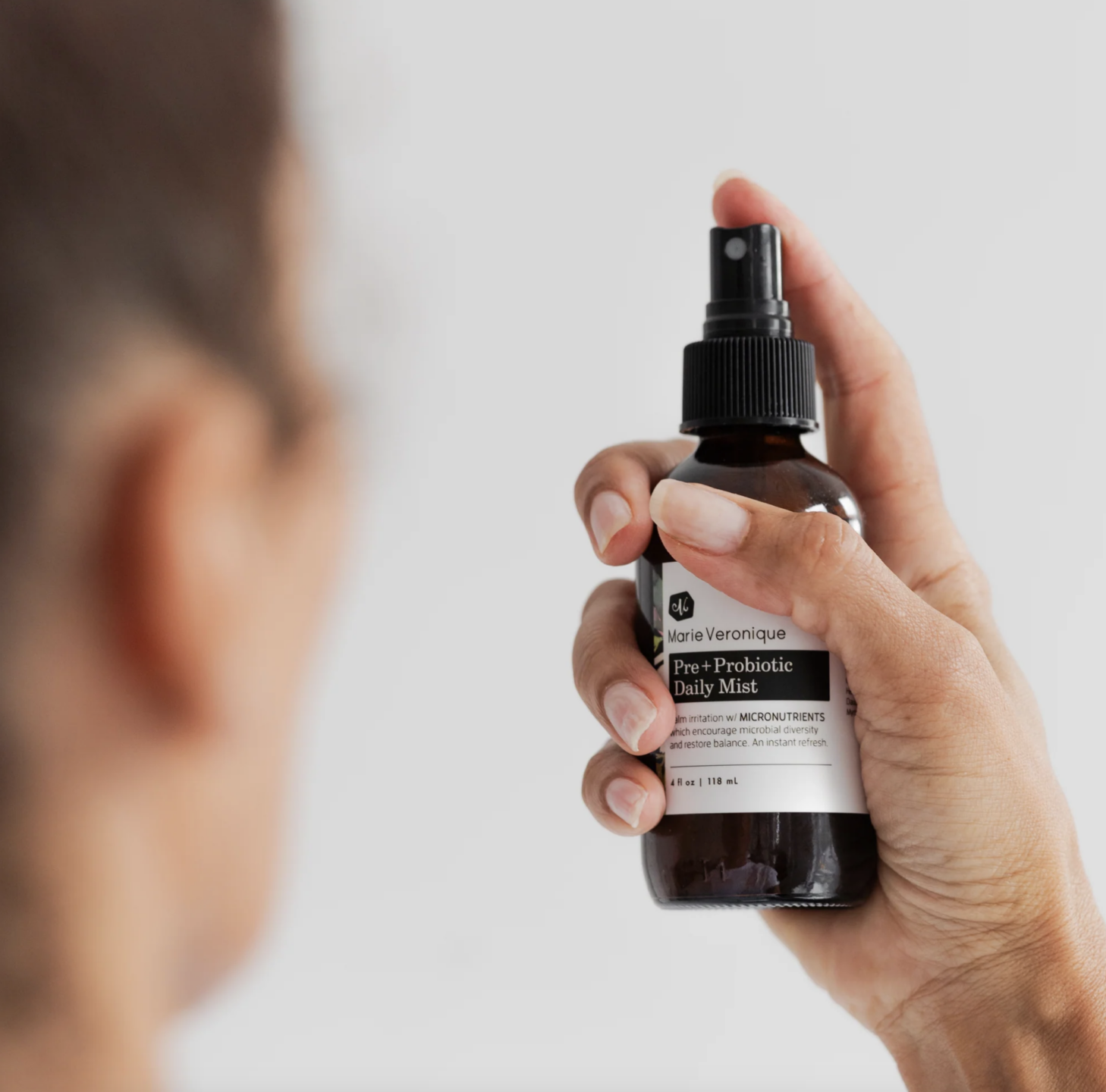
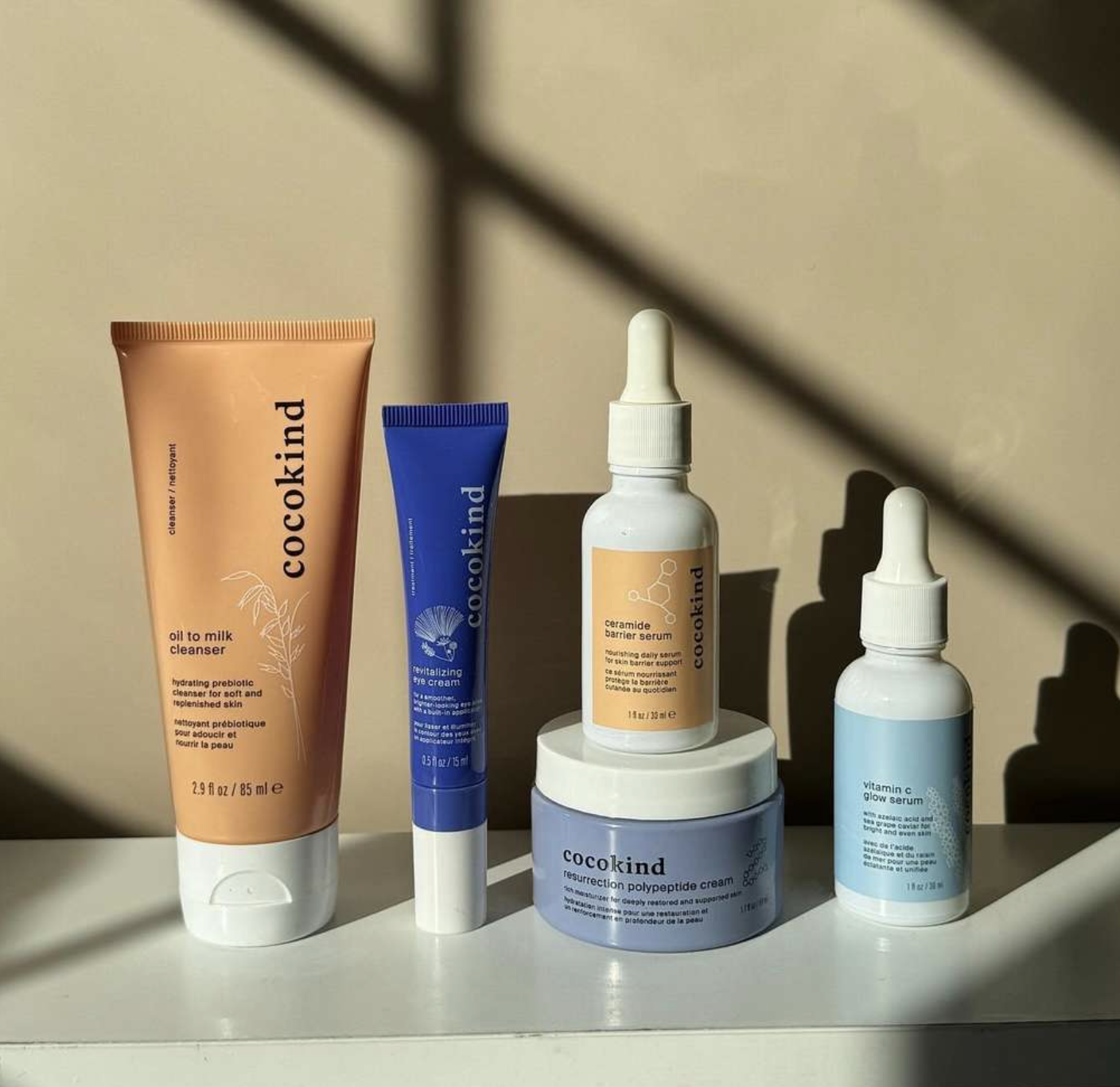
Have Something to Say? Leave a Comment